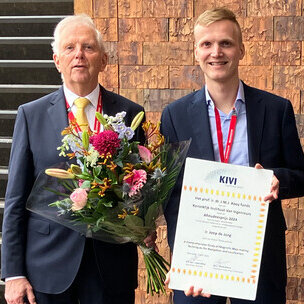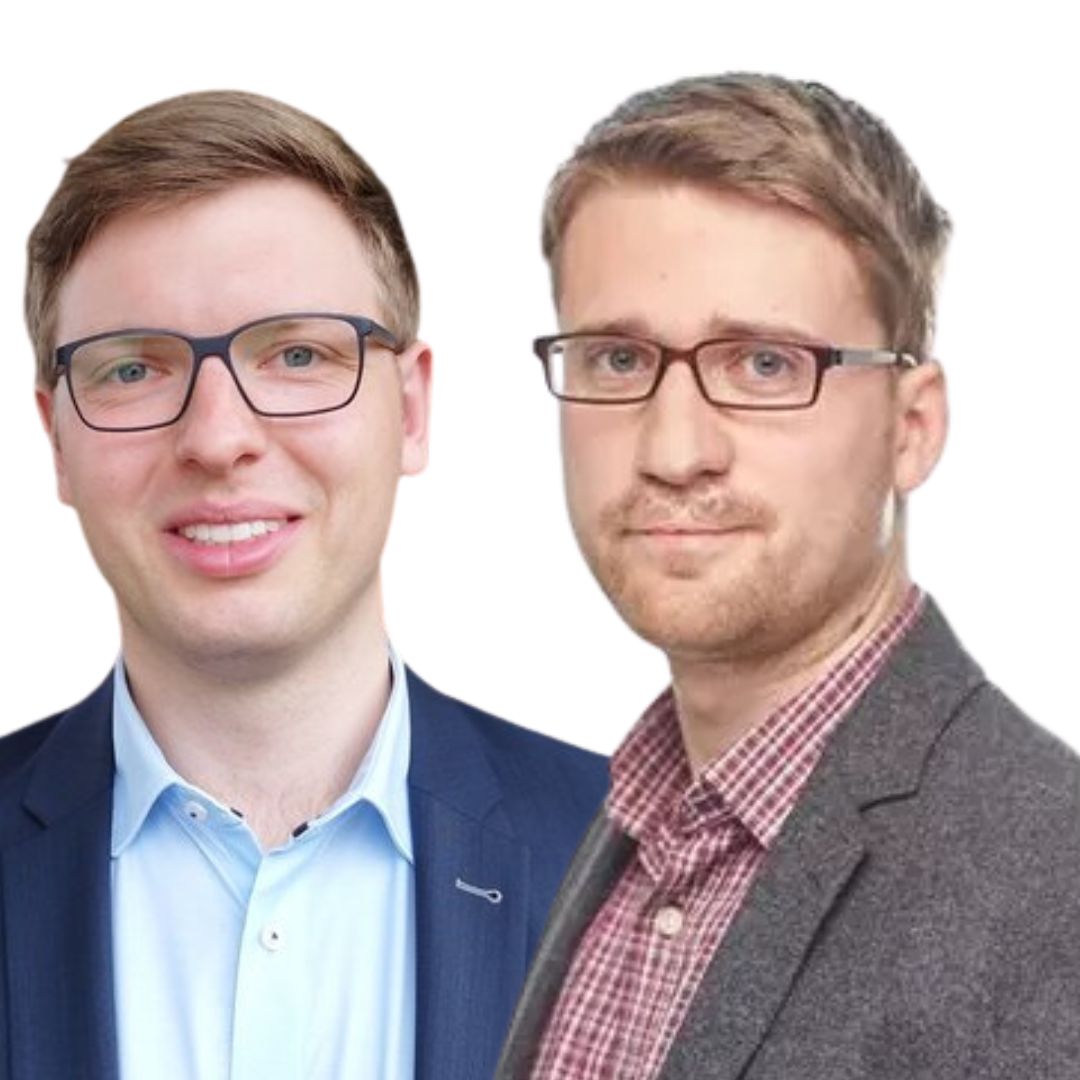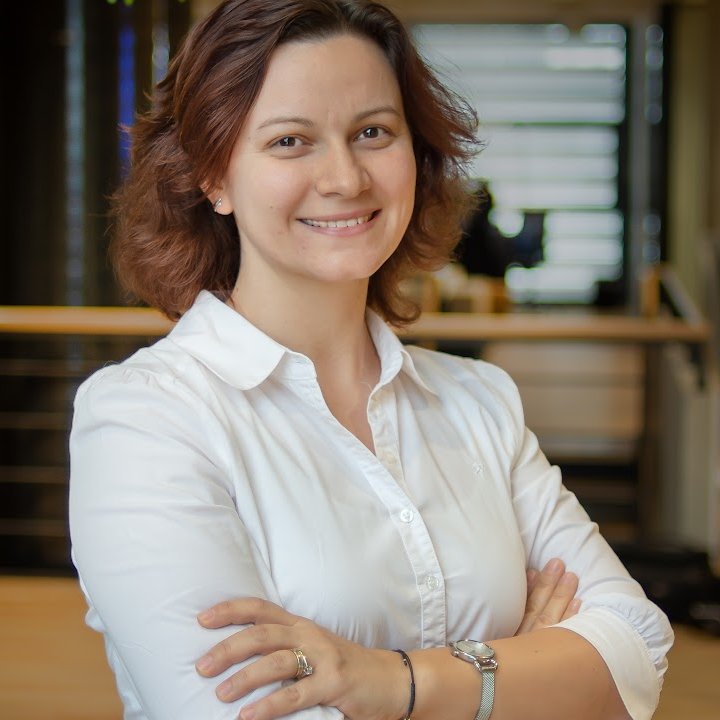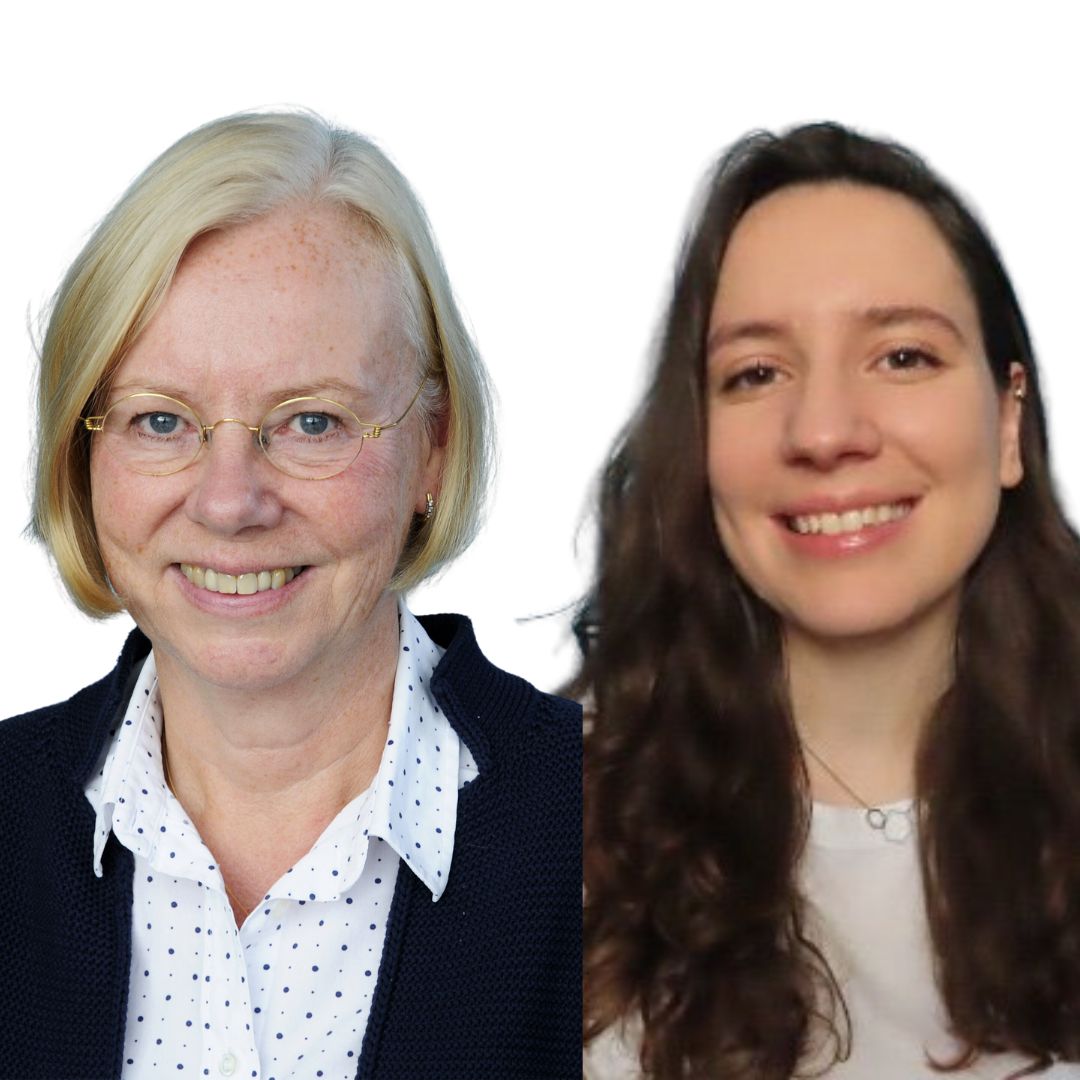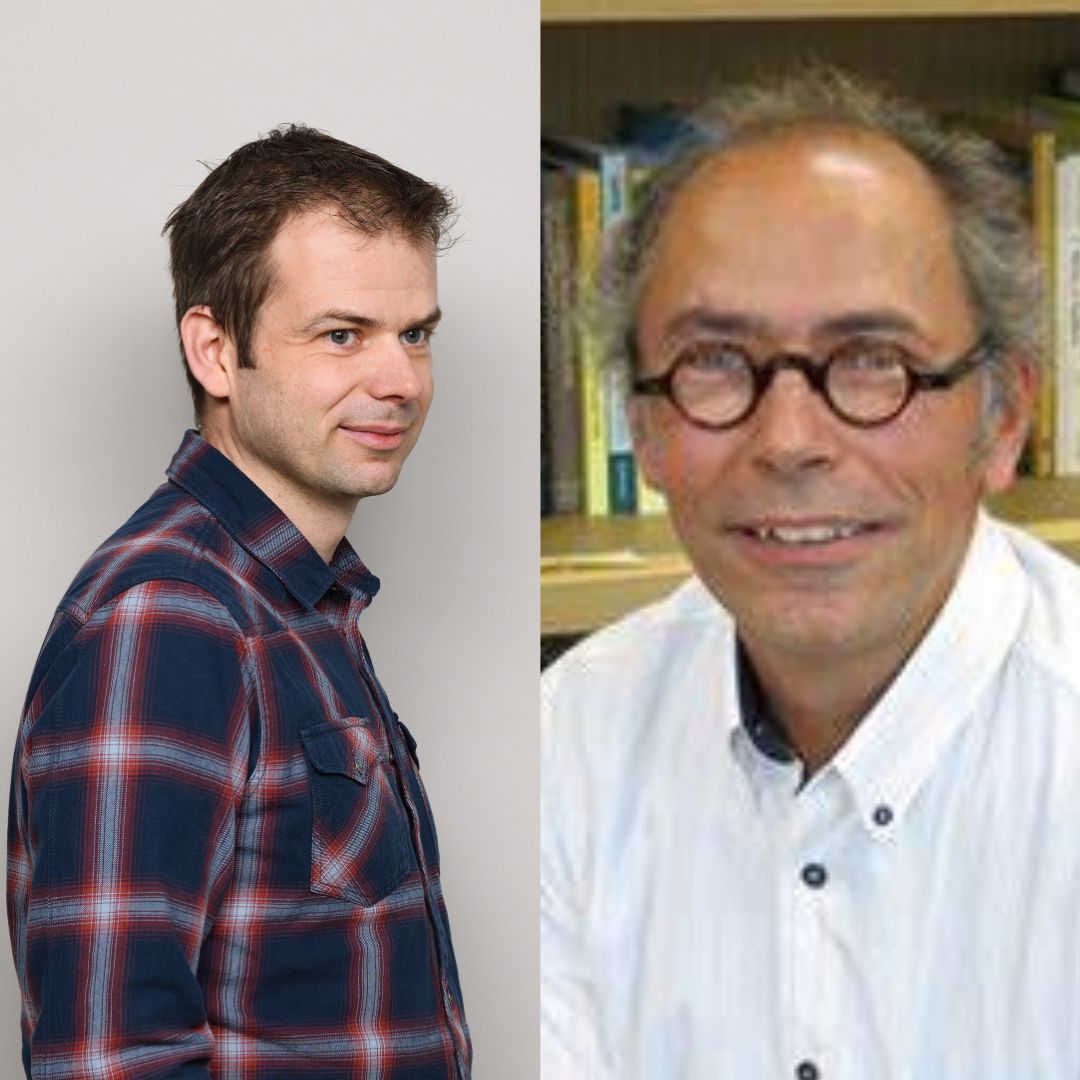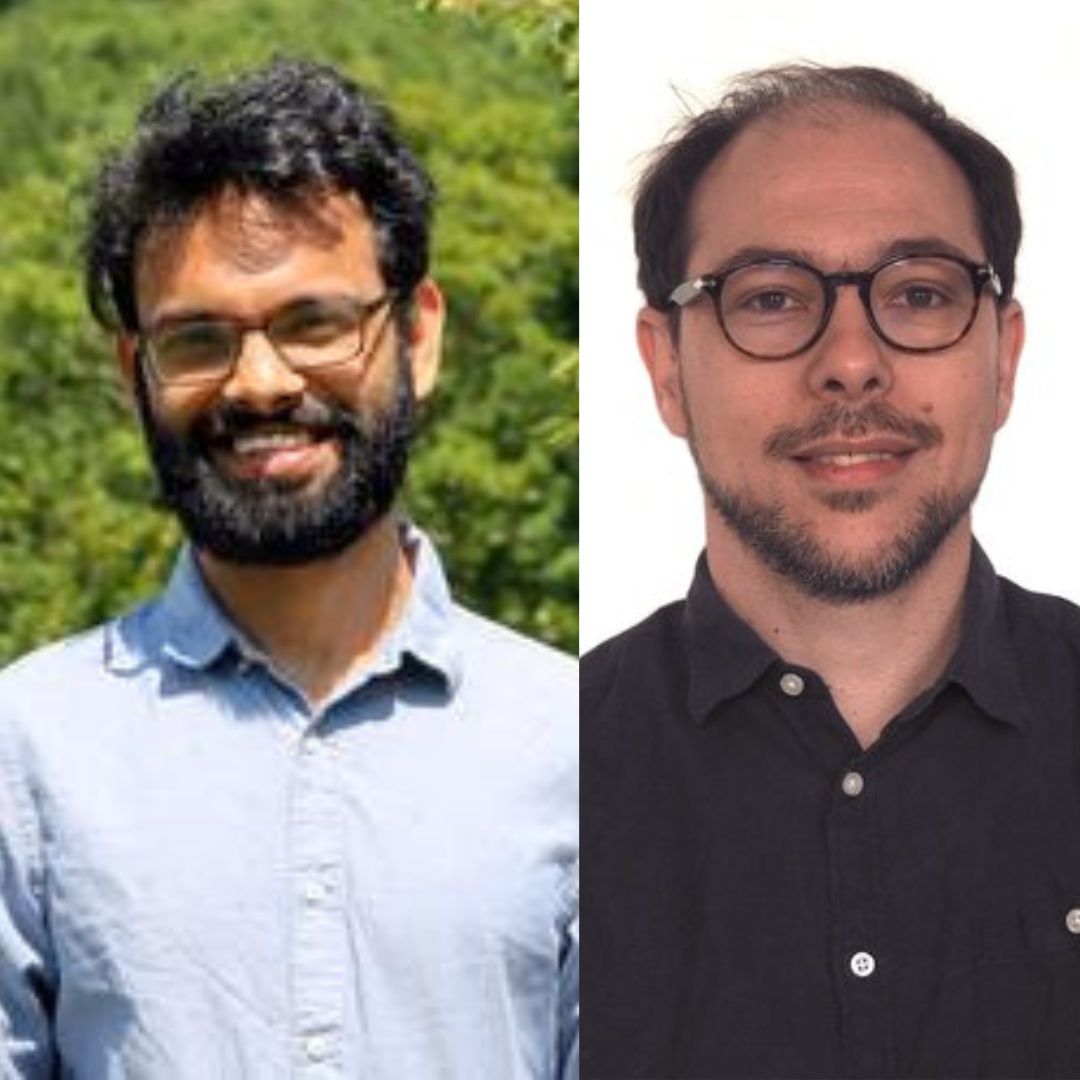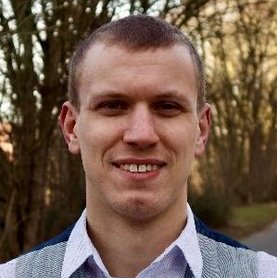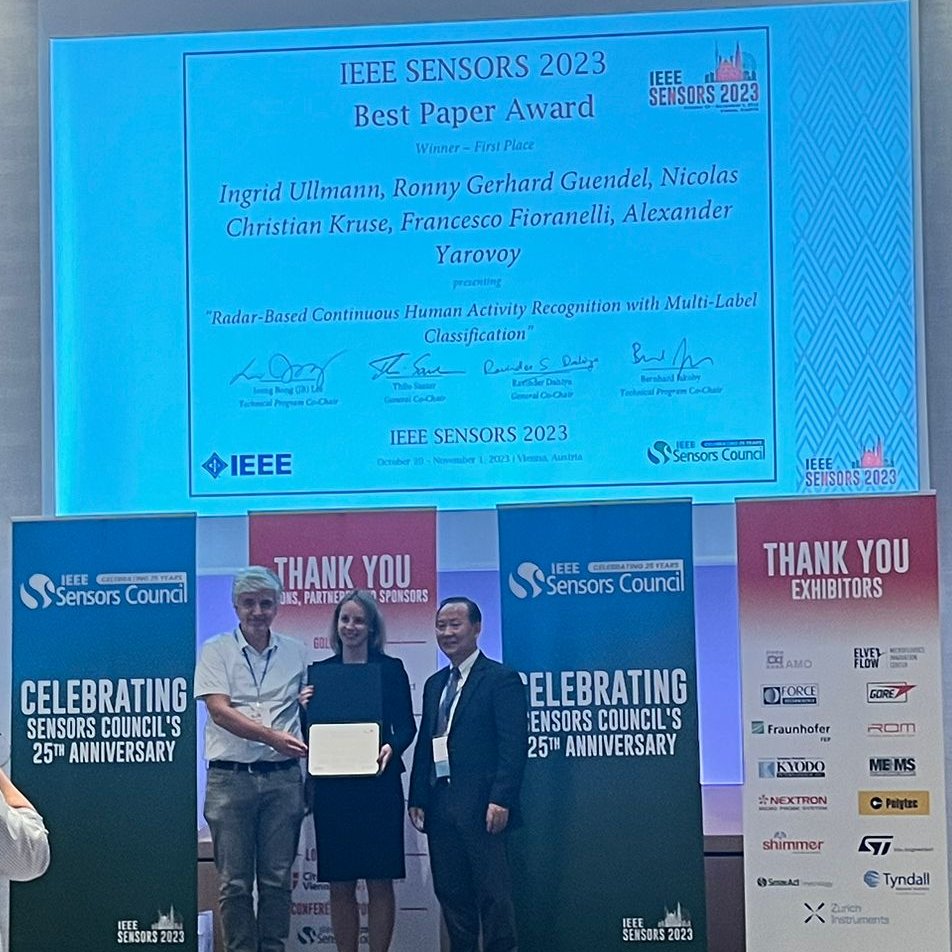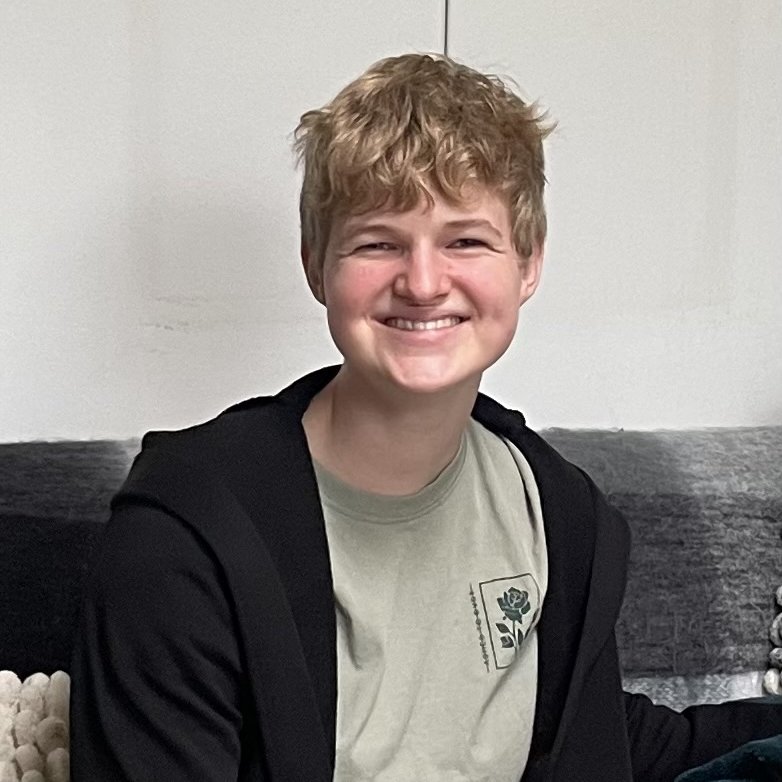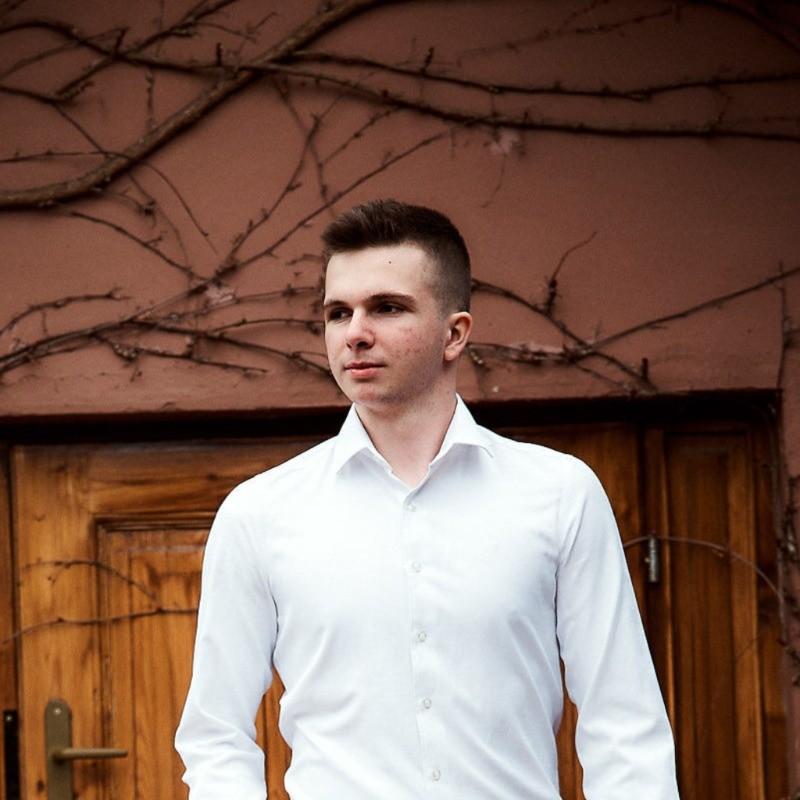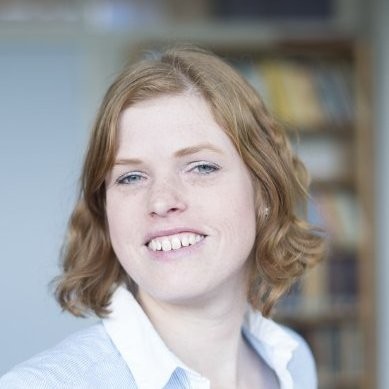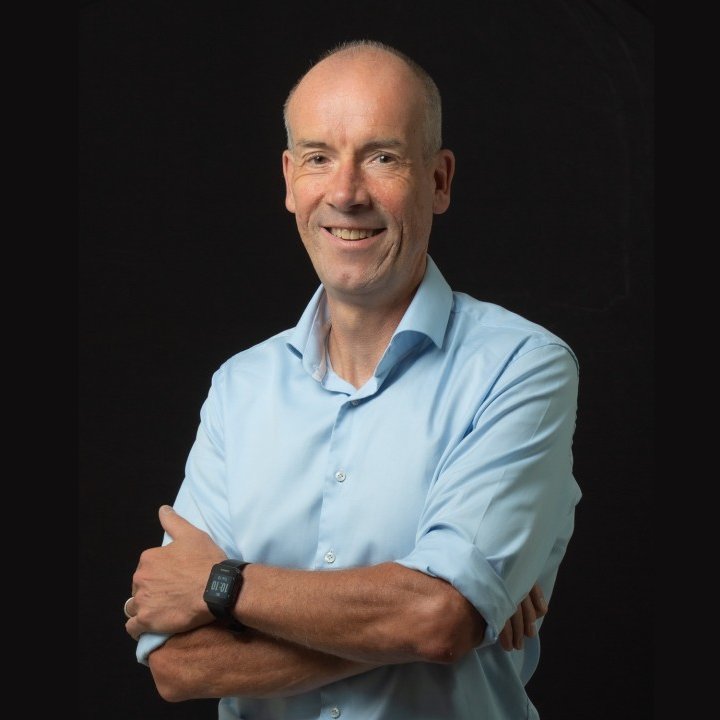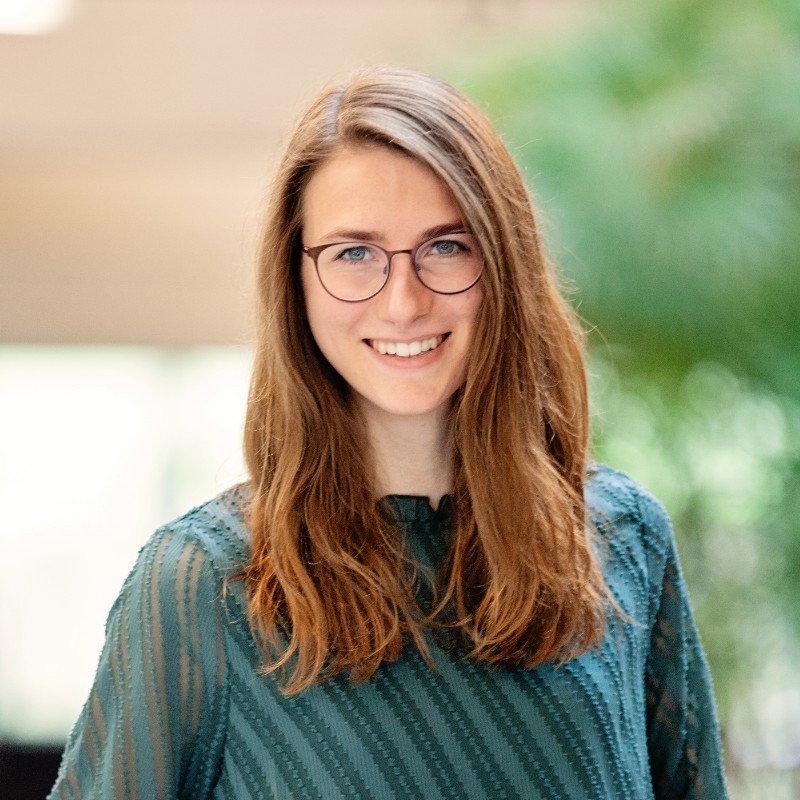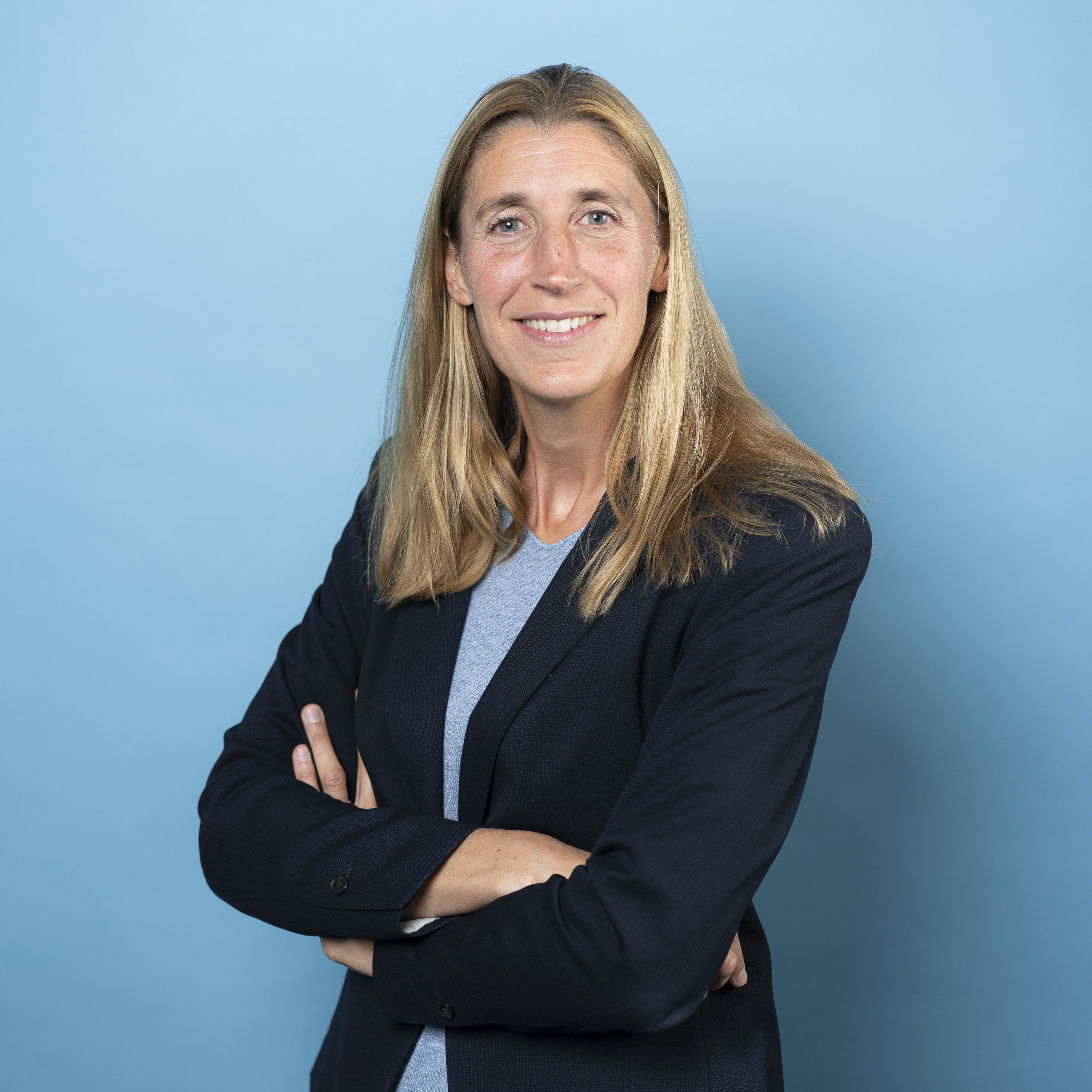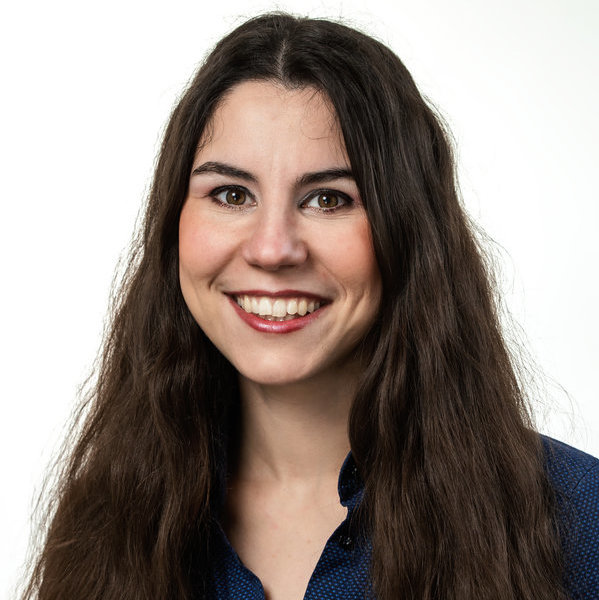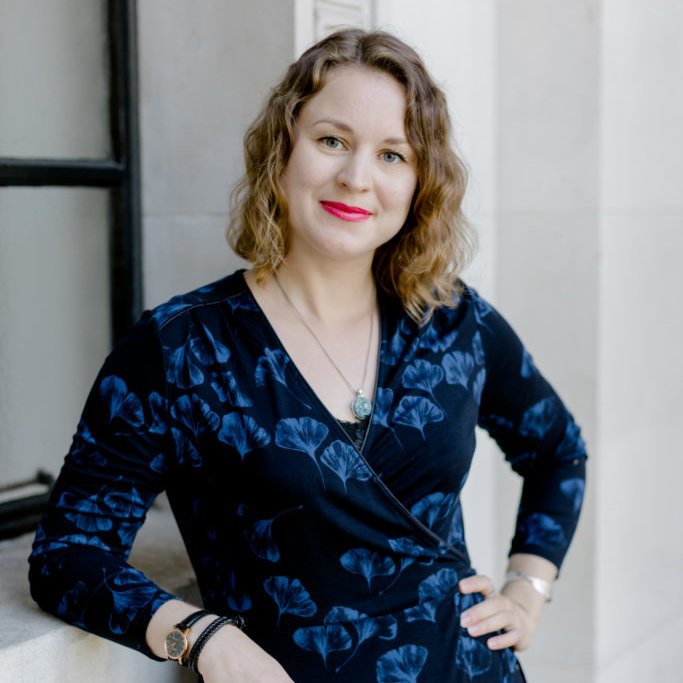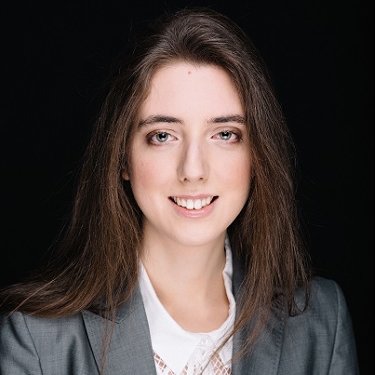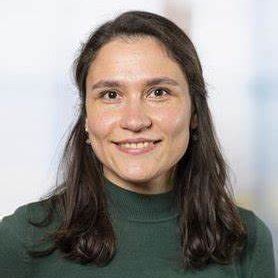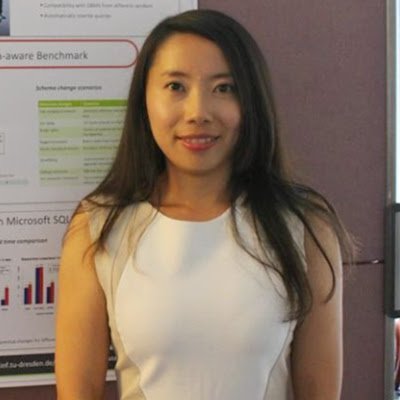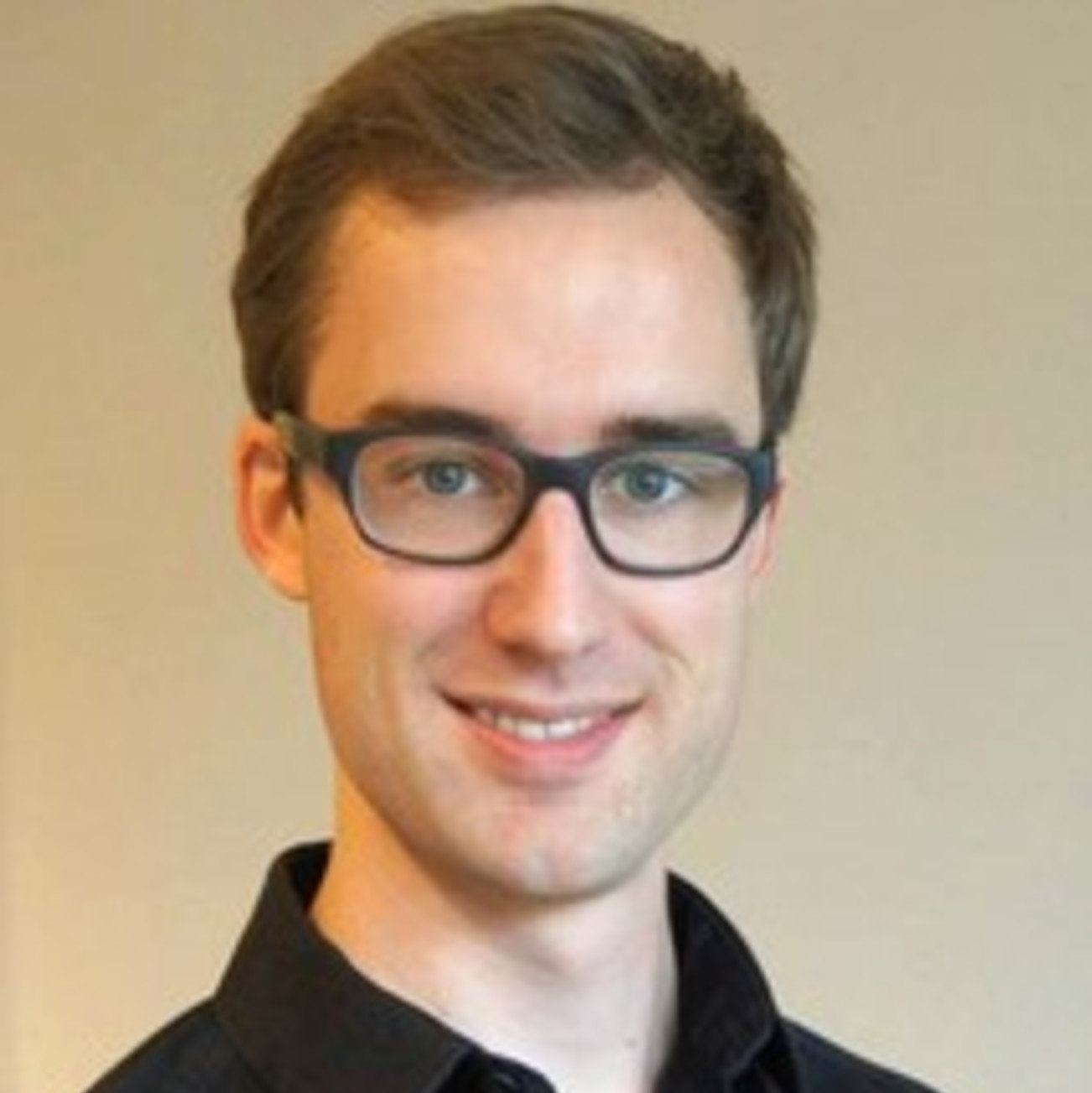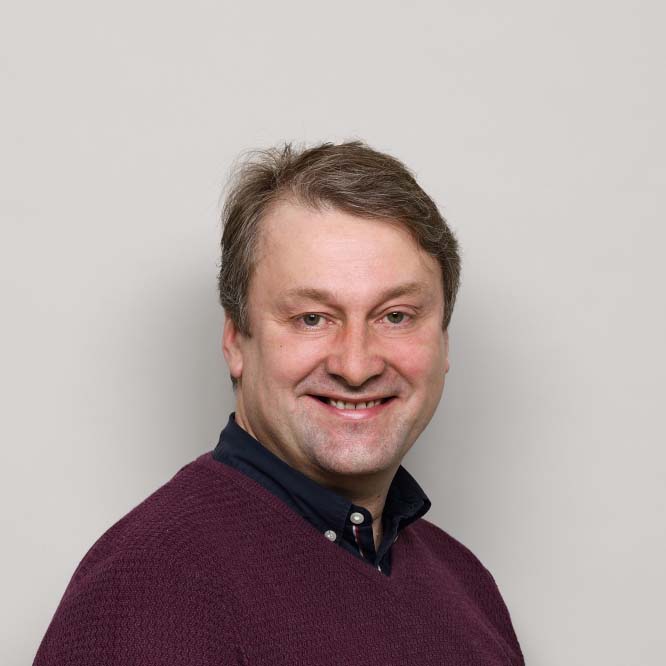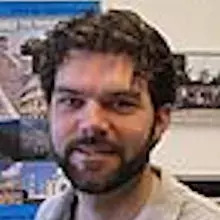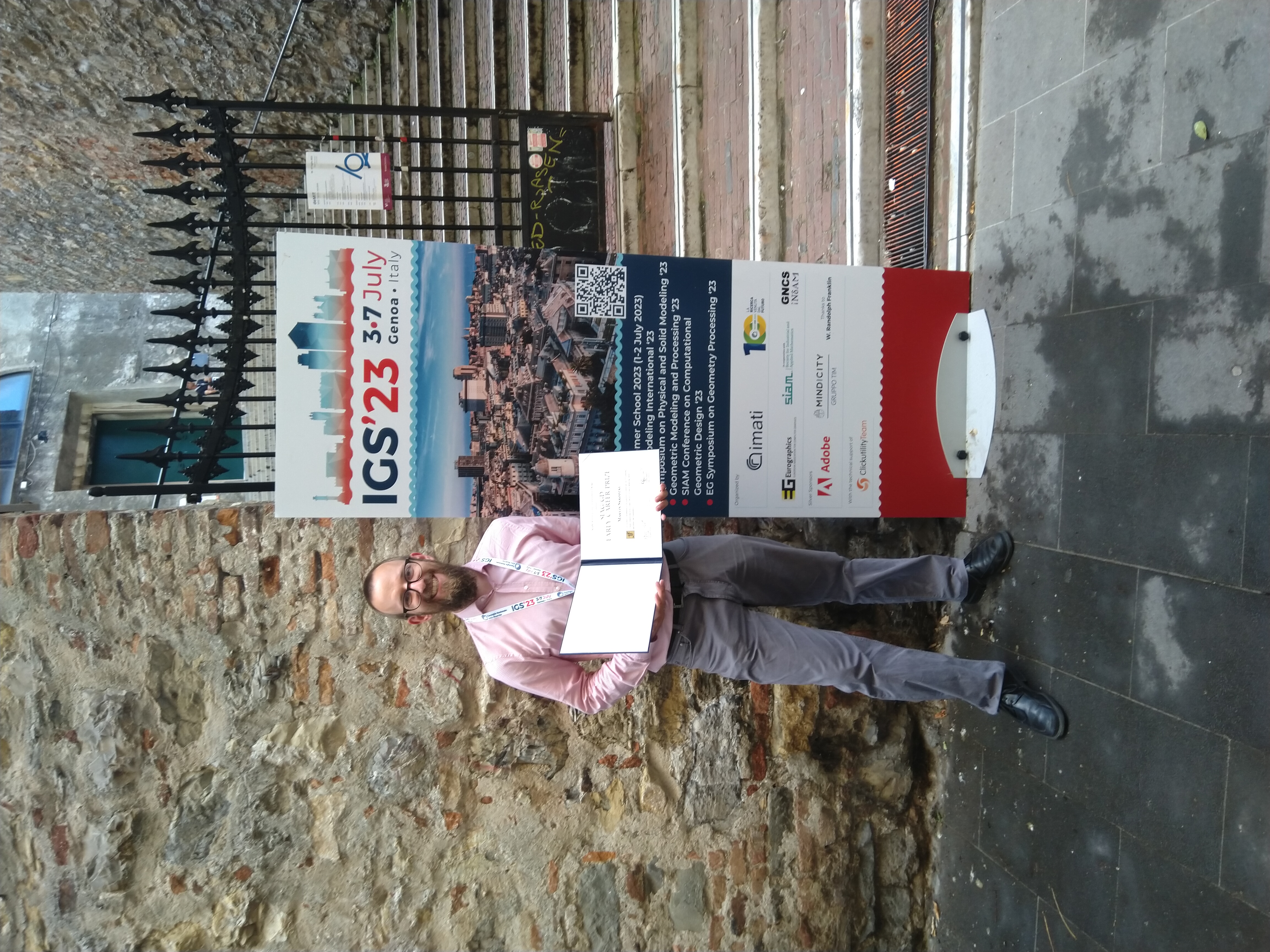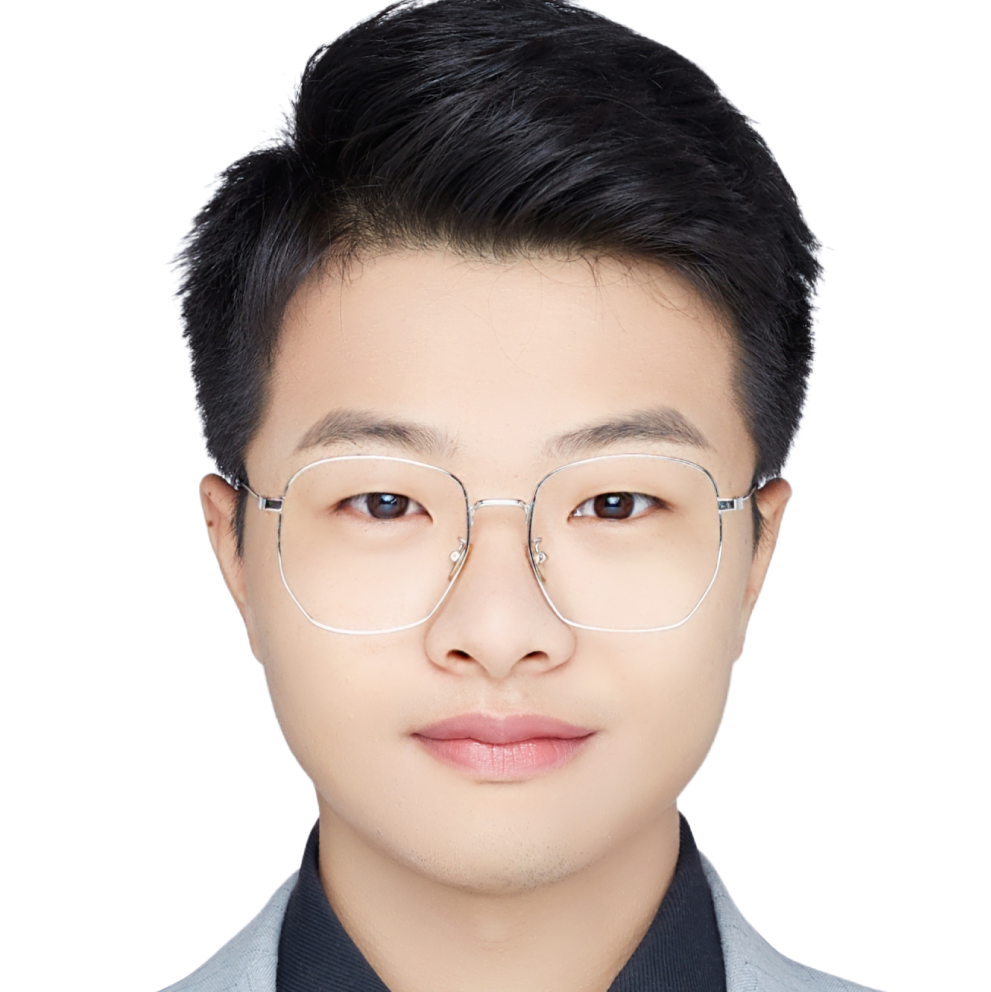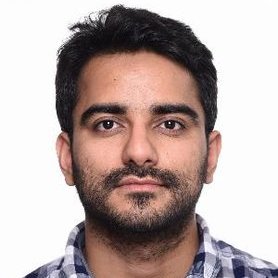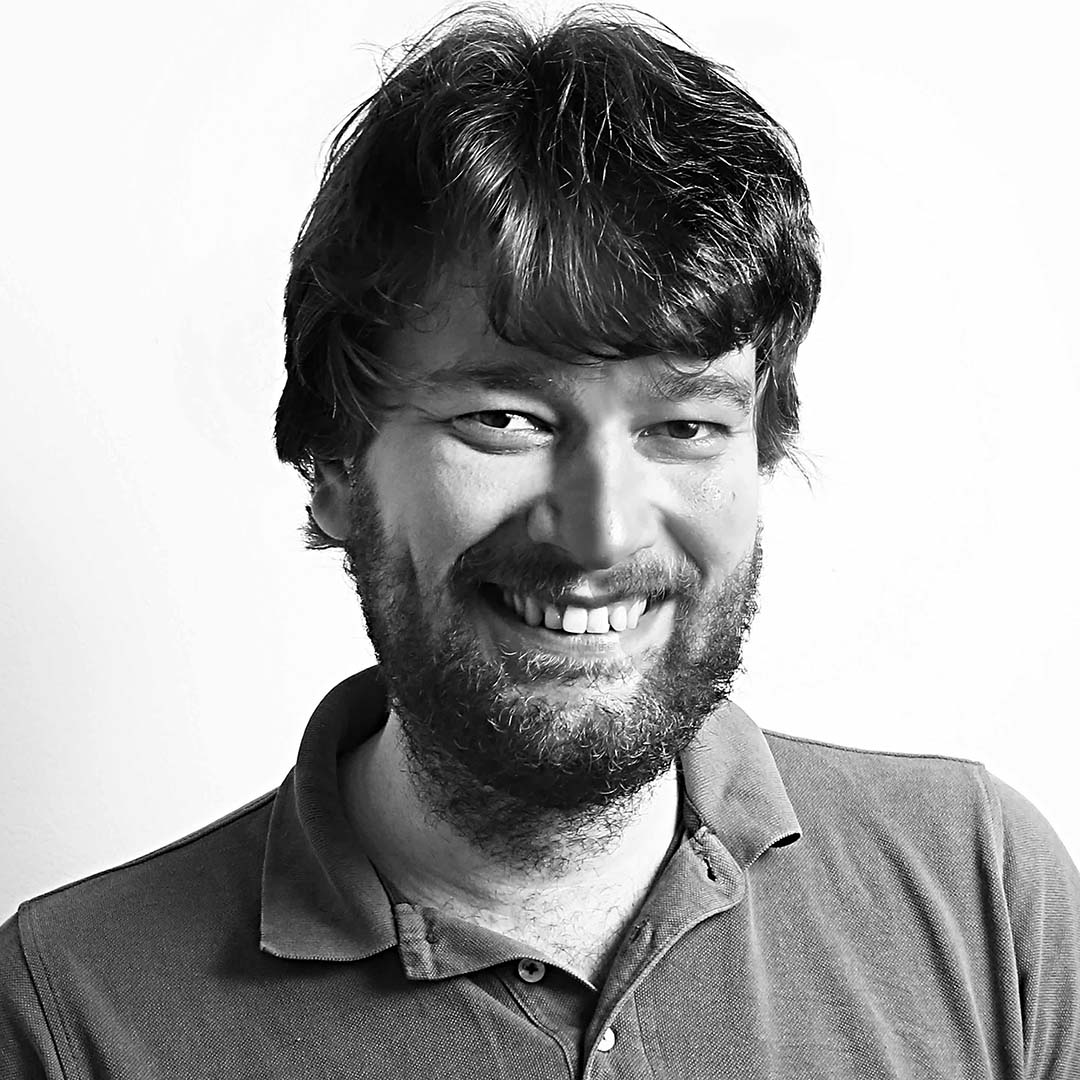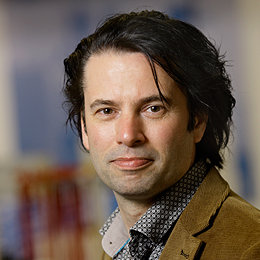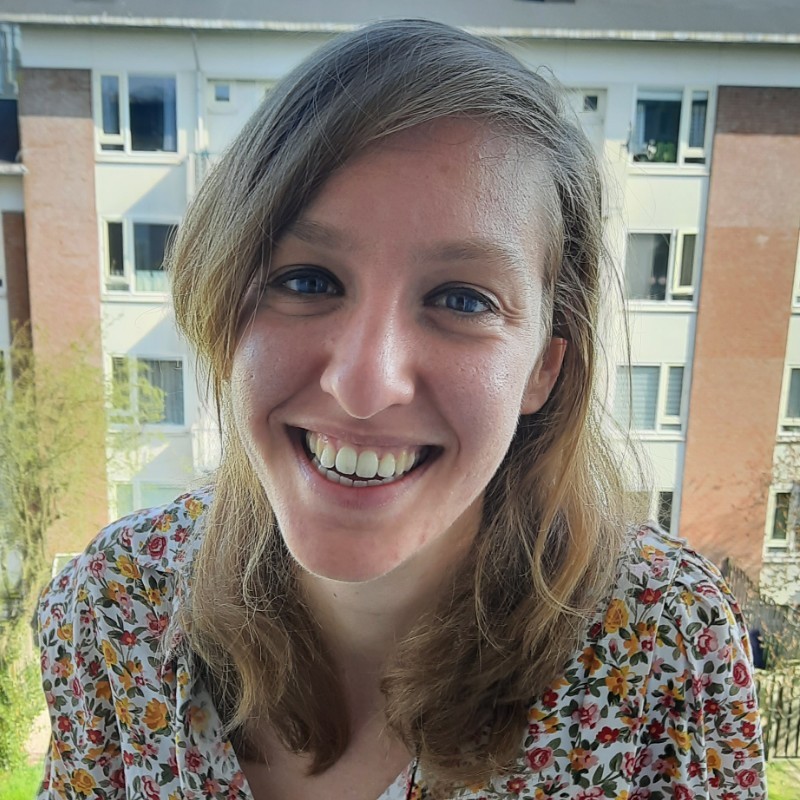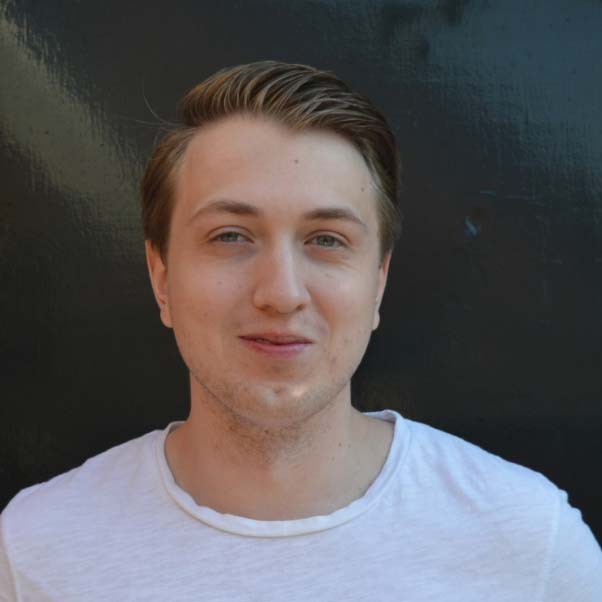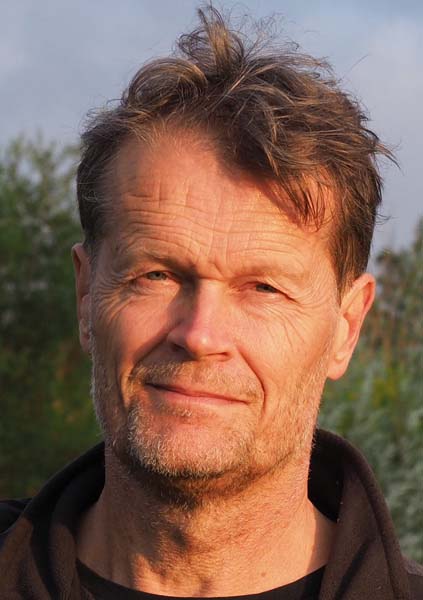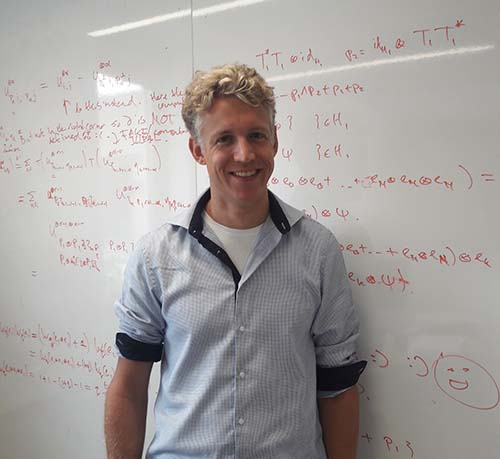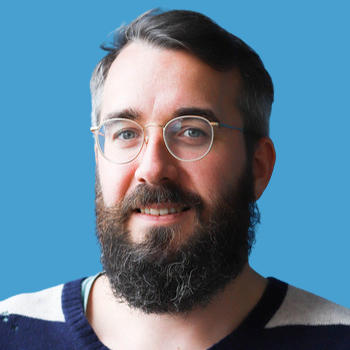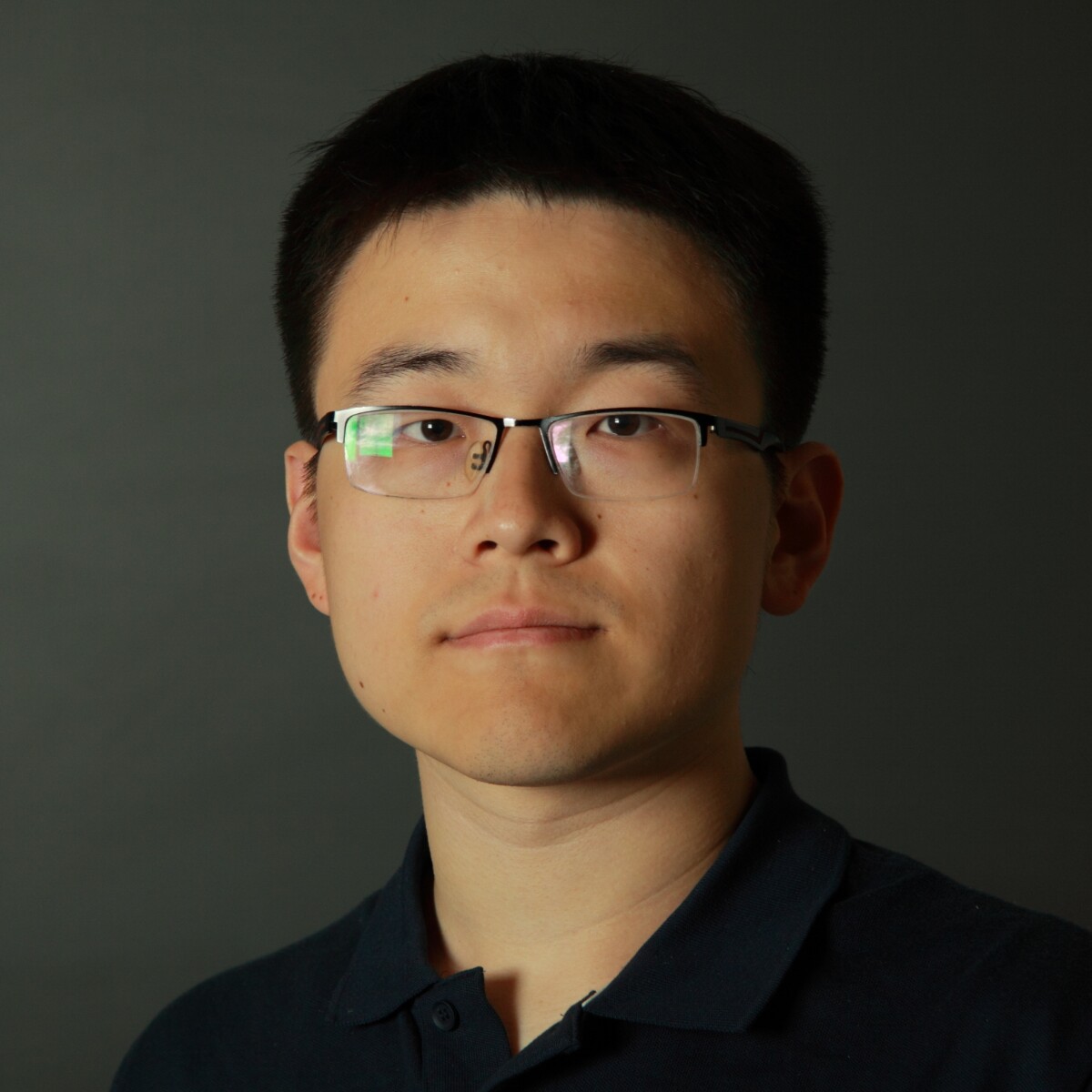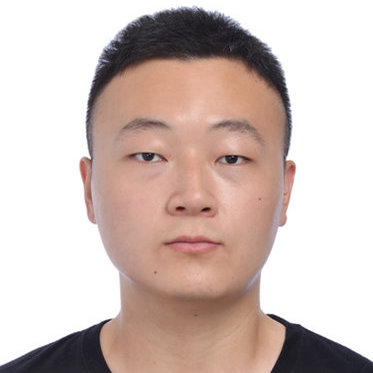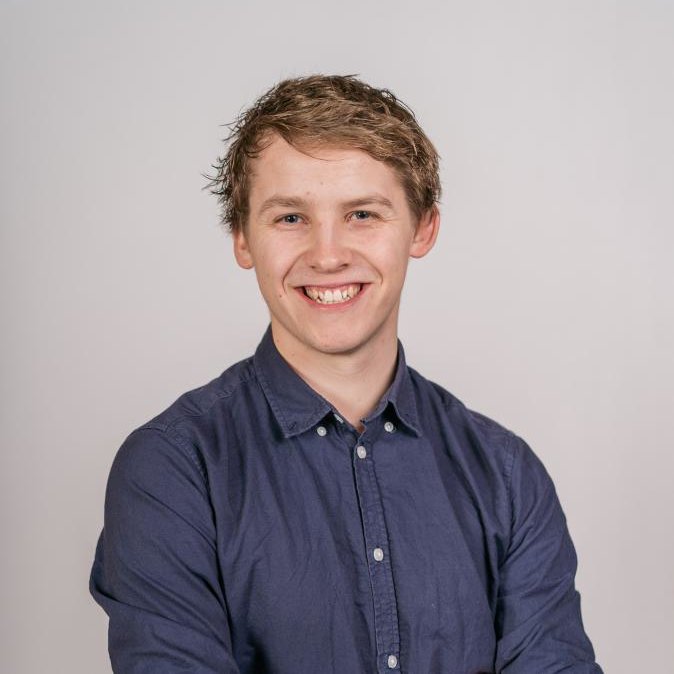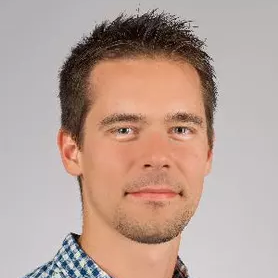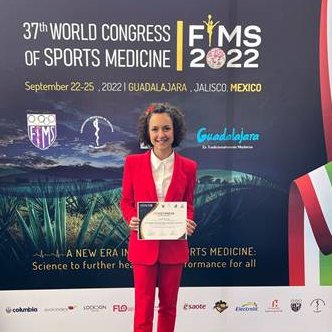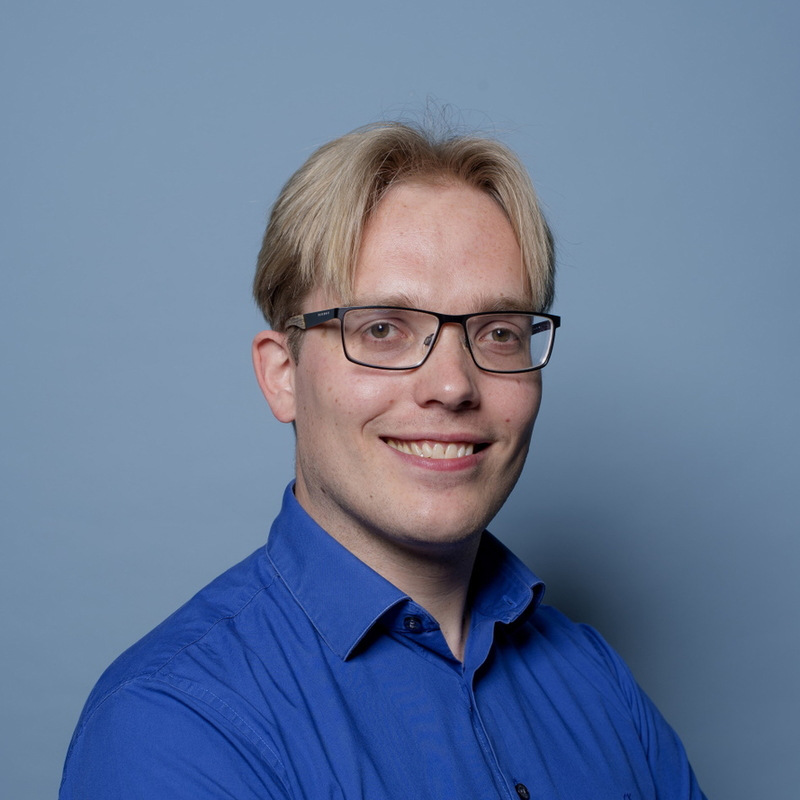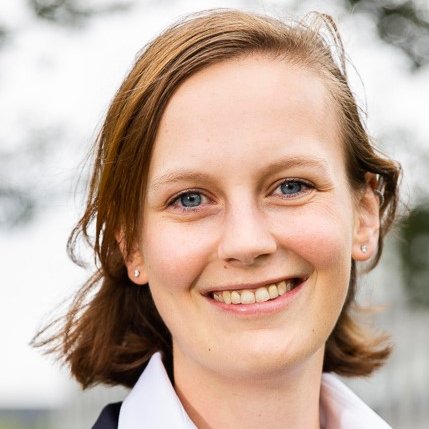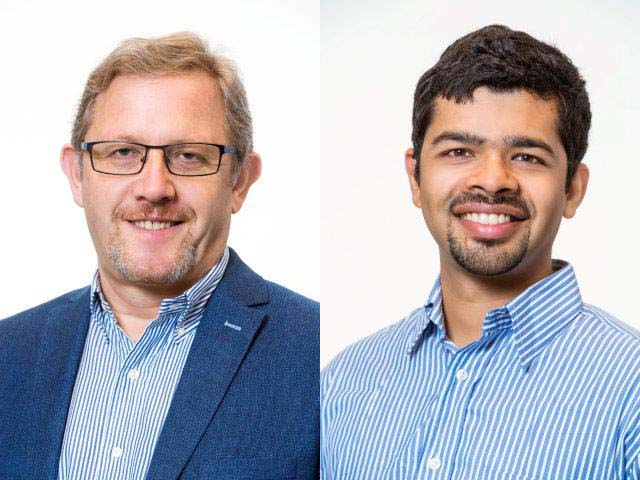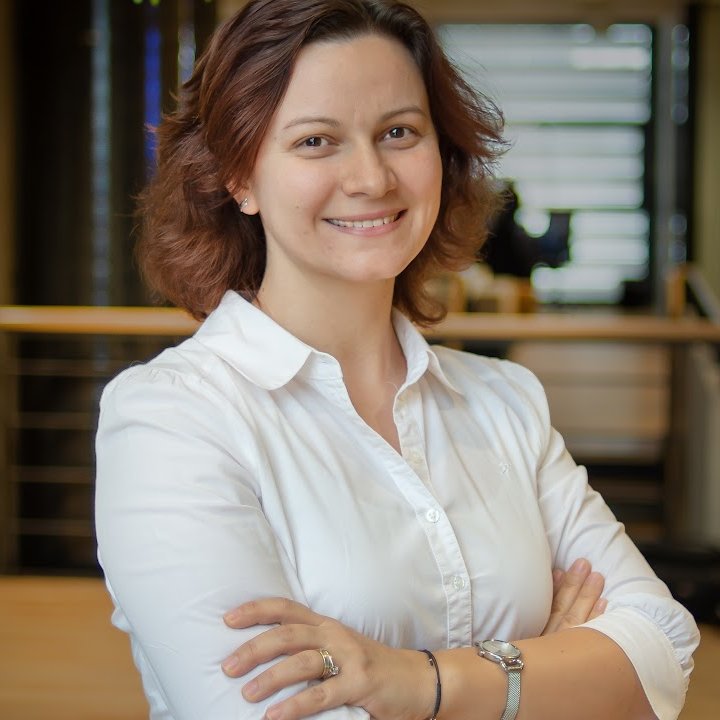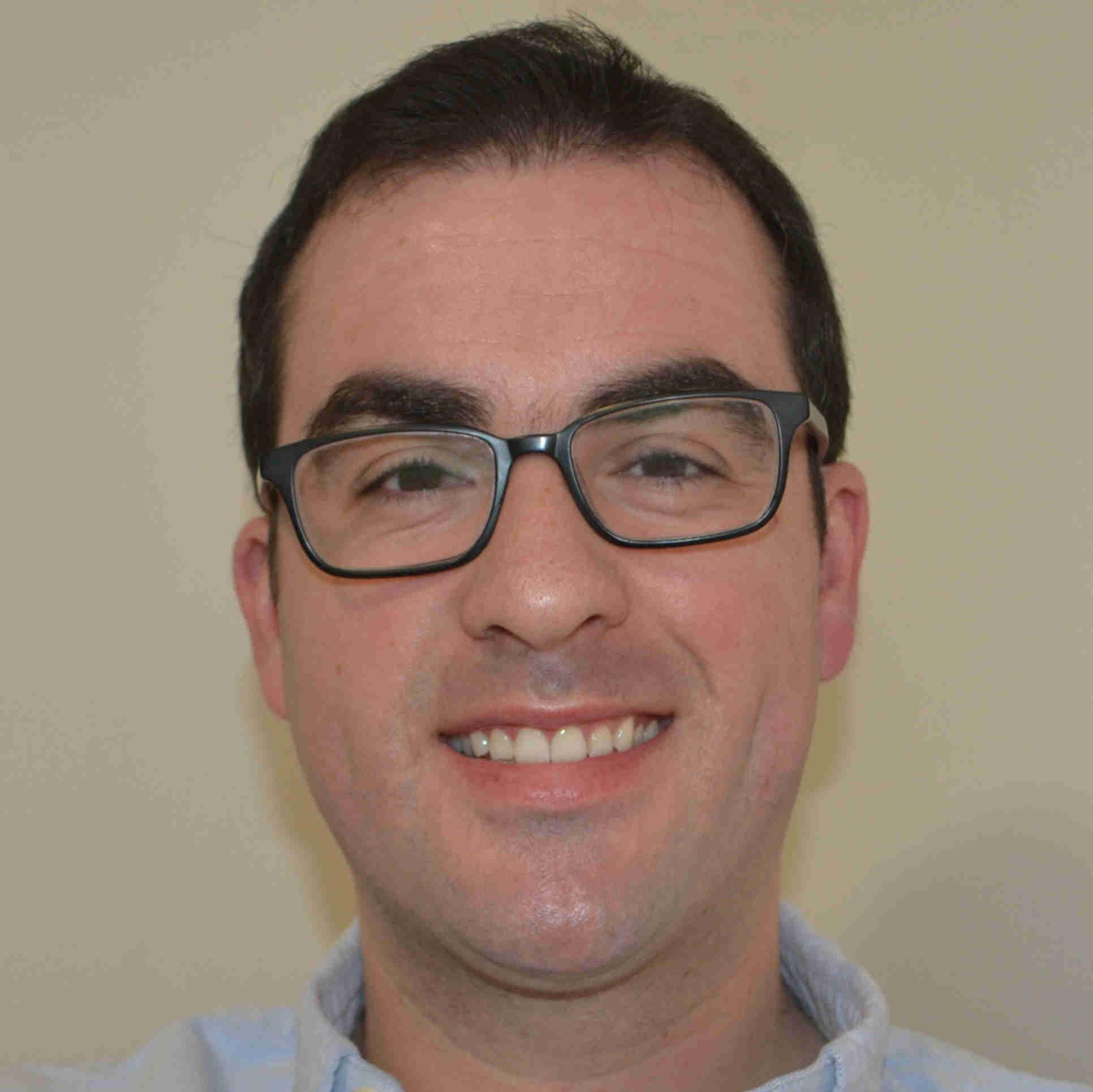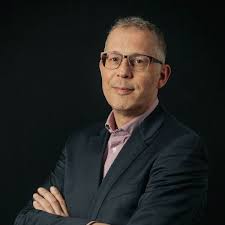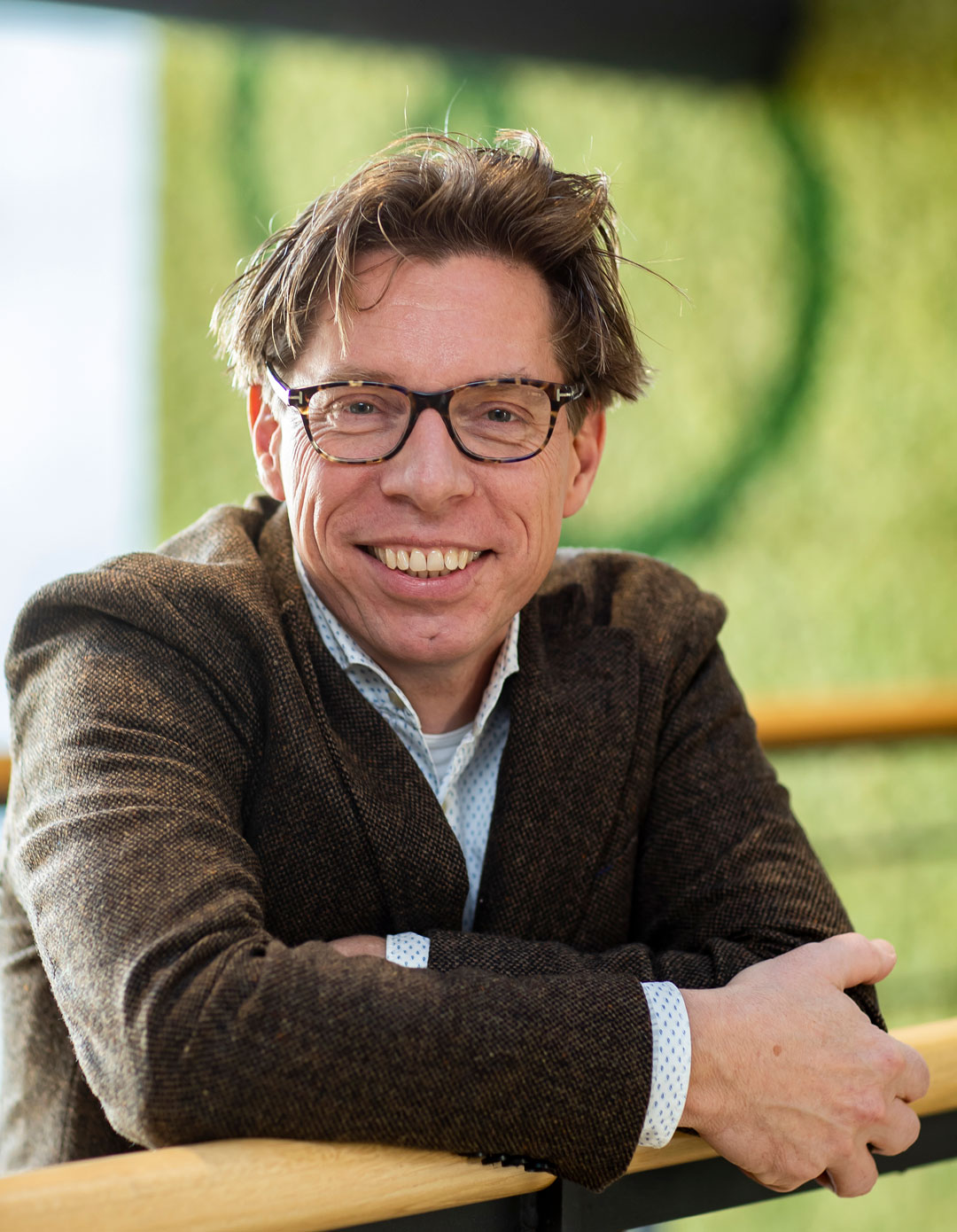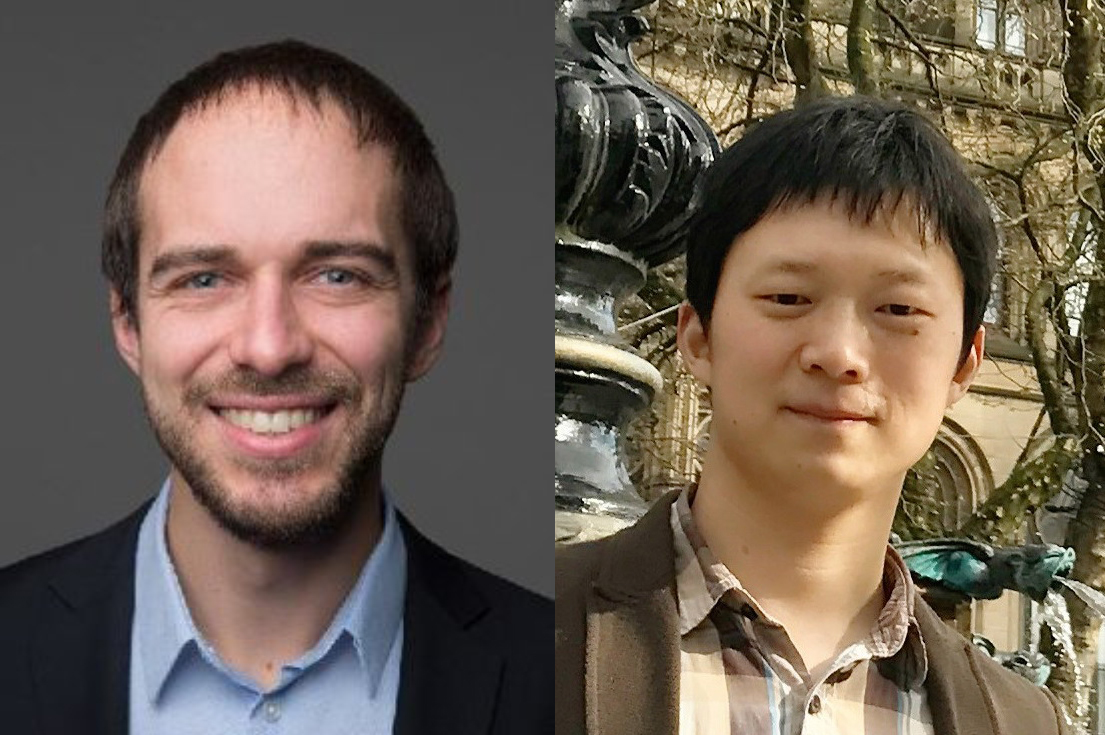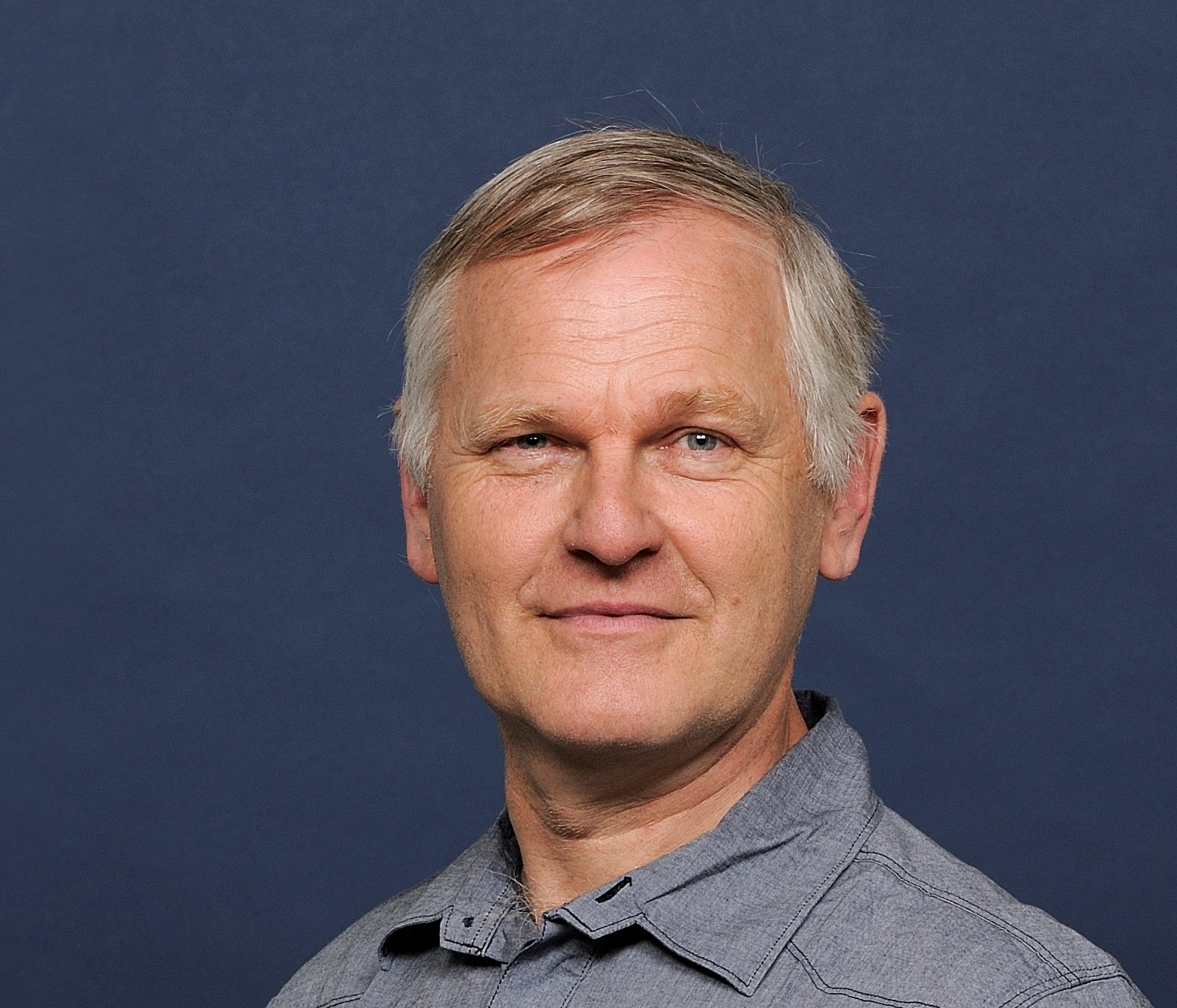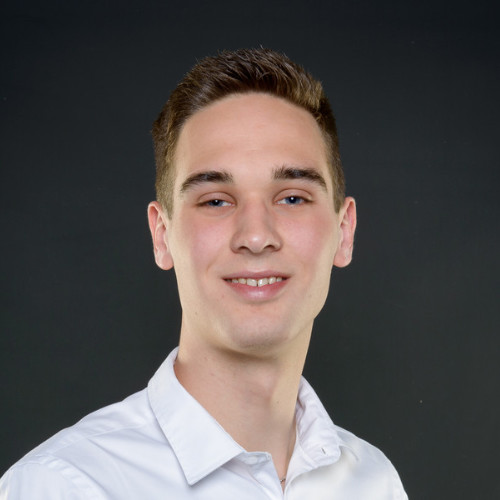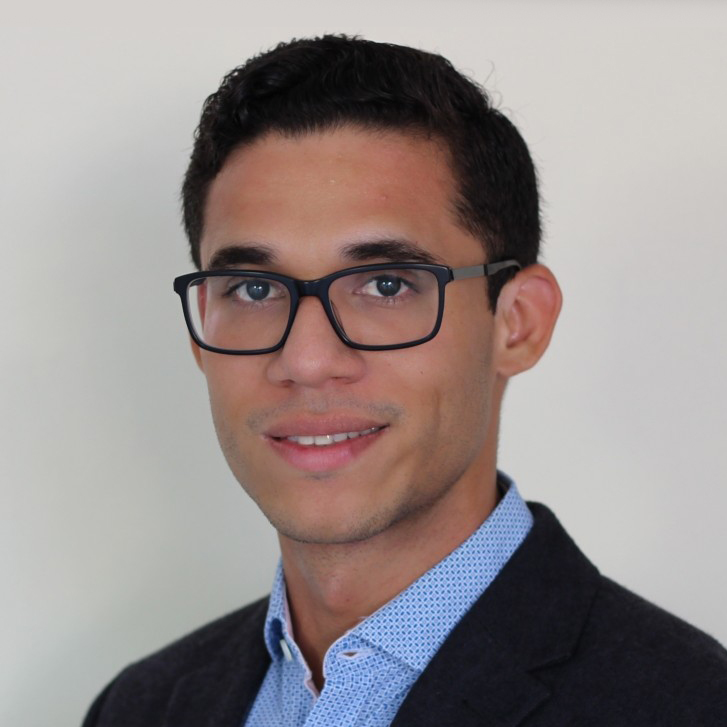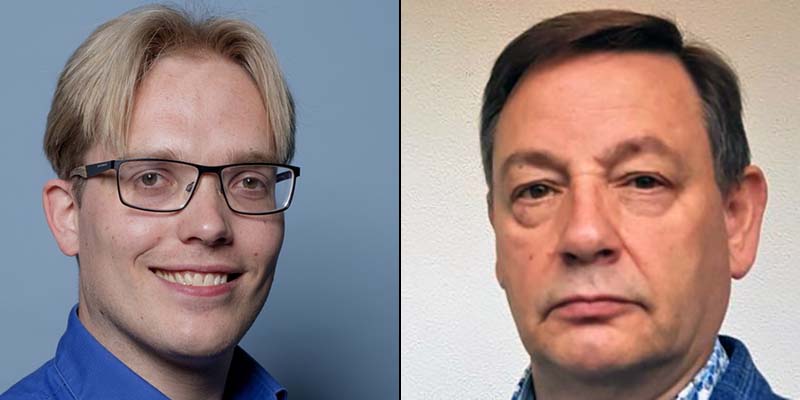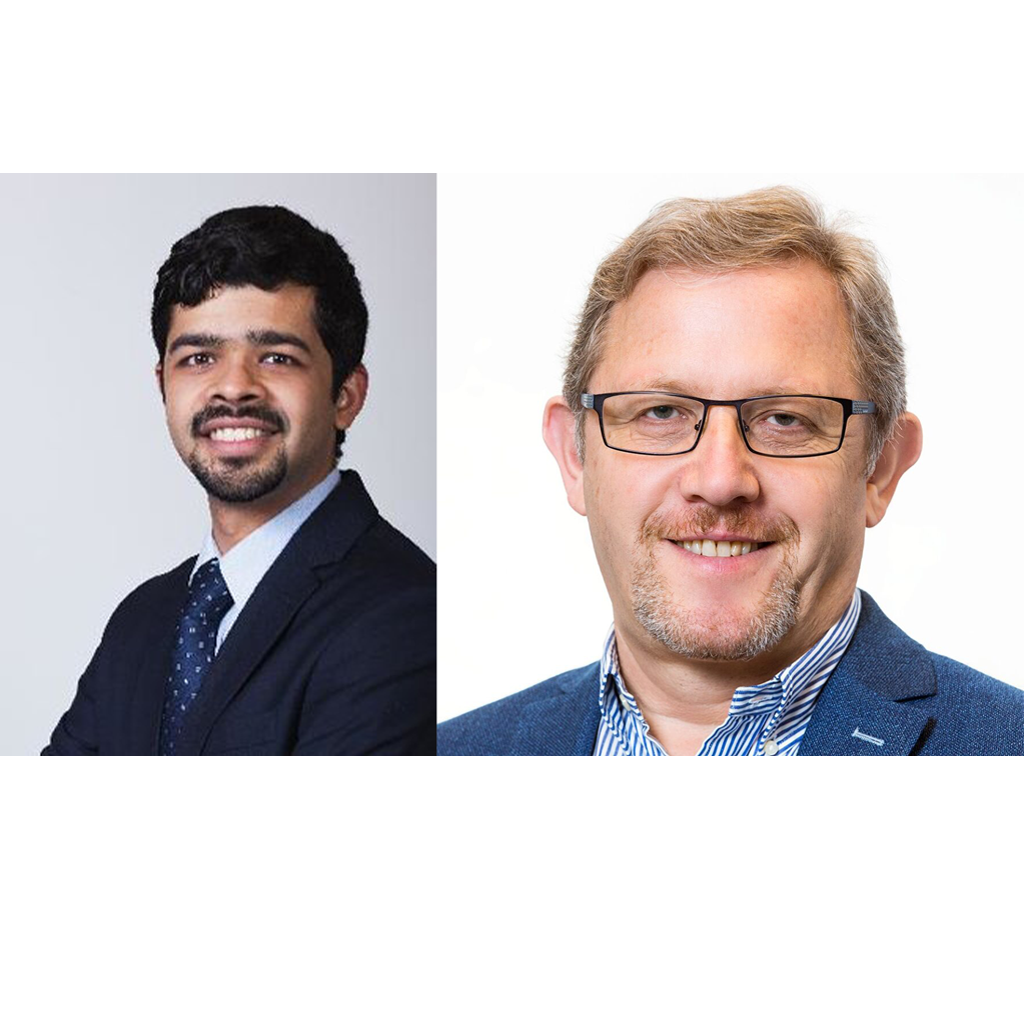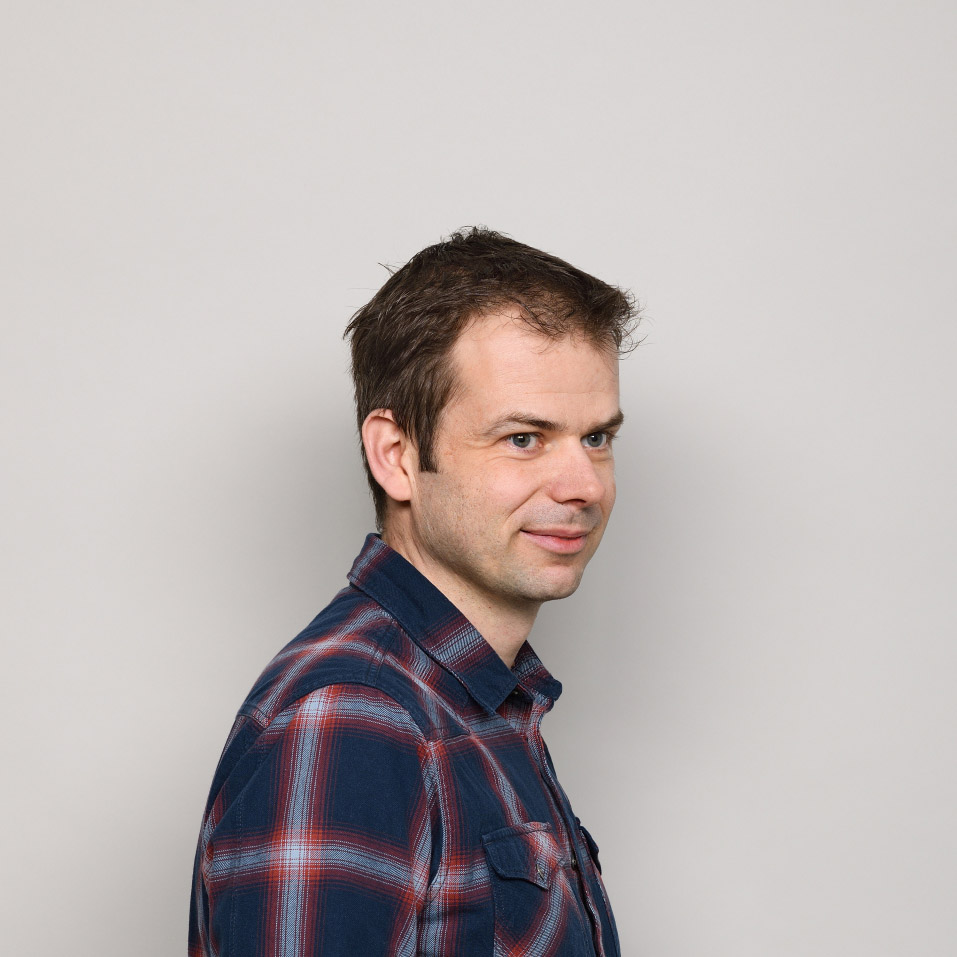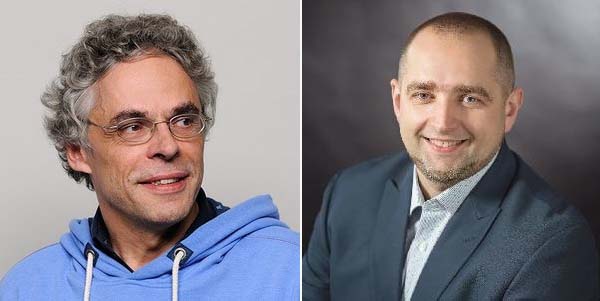EWInners
2024
-
On 3 April, the Kooy Prize of €2,000 was awarded to ir Joep de Jong during the Kooy Symposium 2024. As part of his graduation project for his studies Applied Mathematics, he conducted research at TNO on magnetic mapping for magnetic navigation and localisation. 'With his research, he has laid an impressive foundation for the development of a full-fledged magnetic navigation solution,' said the jury report.
-
From Wednesday till Friday, 13-15 March, TU Delft hosted the 15th workshop on Stochastic Models, Statistics and their Applications (SMSA).
Around 130 researchers attended the workshop which was well- and smoothly organized by Fabian Mies and Nestor Parolya as local organizers (with strong organizational support by Roniet Sharabi and Shémara van der Zwet). Under chair Ansgar Steland from Aachen, they also acted as members of the scientific organization committee. The plenary- as well as parallel sessions were highly appreciated by the participants!
Kees Vuik, DIAM department head, is convinced that our university / faculty / department has made a very good impression on the international field of participants. Thanks to all involved, in particular to Fabian and Nestor!
-
Tina Nane will receive the 2024 Open Education Ambassador Award bestowed by the TU Delft Extension School in recognition of her commitment to openly share her knowledge and educational resources with the world.
Each year TU Delft celebrate eight lecturers (one per faculty and including QuTech) for their advocacy of open education and commitment to openly share knowledge and educational resources with the world. They receive the award from Willem van Valkenburg, Executive Director TU Delft Extension School for Continuing Education. (See previous winners) Tina will receive the Award at a ceremony on 5 March held in conjunction with Open Education Week 2024.
Tina Nane is an associate professor in Applied Probability at Delft Institute of Applied Mathematics (DIAM). Her research interests are application driven and focus on structured expert judgment, risk analysis and uncertainty quantification, scientometrics, and modeling multivariate dependent data. Tina is a teaching enthusiast, and focuses on engaging students for life-long learning experiences.
Congratulations Tina!
-
Karen Aardal and Lara Scavuzzo, together with Laurence Wolsey from UC Louvain, have received the Operations Research Letters (ORL) Best Paper Award, for their paper: "A study of lattice reformulations for integer programming" published in ORL Vol 51 Issue 4.
Operations Research Letters (ORL) is a journal that promises the rapid review of short articles on all aspects of operations research. ORL welcomes pure methodological papers and applied papers with firm methodological grounding.
Abstract of the paper: Branch-and-bound for integer optimization typically uses single-variable disjunctions. Enumerative methods for integer optimization with theoretical guarantees use a non-binary search tree with general disjunctions based on lattice structure. These disjunctions are expensive to compute and challenging to implement. Here we compare two lattice reformulations that can be used to heuristically obtain general disjunctions in the original space, we develop a new lattice-based variant, and compare the derived disjunctions computationally with those produced by the algorithm of Lovász and Scarf.
Congratulations Lara and Karen!
2023
-
Jan van Neerven and Mark Veraar, both professors within the Analysis research group at the Delft Institute of Applied Mathematics, together with Tuomas Hytönen and Lutz Weis, have released the third volume of the book project "Analysis in Banach Spaces". It has just been published by Springer as volume 76 in the series Ergebnisse der Mathematik.
Volume III focuses on vector-valued singular integral operators. Develops deep connections with evolution equations. It is self-contained with complete and detailed proofs. The book can be purchased here:
https://link.springer.com/book/10.1007/978-3-031-46598-7.
Congratulations to Jan and Mark!
-
Each year, the eScience Center publishes open calls for researchers in any scientific discipline. The Software Sustainability Call aims to work with researchers who require expertise to apply quality standards to ensure the continuity and advancement of their research in the long term. Each research team will be partnered up with eScience Center research software engineers (RSEs) who will advise and (co-)develop sustainable research software, and more.
Deepesh Toshniwal and Artur Palha – both of the Delft Institute of Applied Mathematics - are part of a consortium for the e-Science Sustainable Software call 2023. The consortium is called HP2SIM: Democratizing multi-physics simulations with high-productivity high-performance finite element software. This is the description of their consortium project:
Gridap, a finite element multi-physics library in Julia, enables access to complex simulations for researchers in various fields, including weather research, photonics, nuclear fusion and offshore engineering. We aim to enhance Gridap, bringing together domain experts, applied mathematicians and HPC experts to collaboratively address partial differential equations, demonstrate capability and engage a broader community for further development.
2 FTEs will work within this project (funding amount 150 k Euro).
Congratulations Deepesh en Artur!
-
Alexander Heinlein is part of the research consortium FAB4FUTURE. This research project aims to develop tools to make living materials. The title of the research is: A biofabrication toolbox for the next generation of sustainable living materials in life sciences. The consortium will receive Perspective programme funding from NWO. The budget for the consortium is (incl. co-financing) 3.1 million euros. The description of the project is as follows:
To feed a growing and ageing world population and keep it healthy without harming the planet, realistic lab-made tissues are indispensable. However, current production methods are still too slow and expensive, and do not always lead to the desired properties. FAB4FUTURE combines artificial intelligence with knowledge and methods from the medical and food production sectors in a 'toolbox' for the scalable and configurable production of living material. The researchers demonstrate their methods in three-dimensional heart models for cardiovascular disease research and in cultured meat with the same taste, texture and nutritional value as real meat.
Alexander will supervise a 3-year postdoc within this programme.
Congratulations to Alexander!
-
Olexander Yarovoy and the Microwave Sensing, Signals and Systems (MS3) group have received the Best Paper Award at the IEEE Sensors Conference 2023 in Vienna! The MS3 group performs theoretical and experimental research on fundamental and applied aspects of microwave systems for surveillance and remote sensing.
The paper was entitled “Radar-based Continuous Human Activity Recognition with Multi-Label Classification” and is a collaboration between the MS3 group and the Institute of Microwaves and Photonics of the Friedrich-Alexander University in Erlangen-Nurnberg. This work comes from the visit of Dr Ingrid Ullmann in our group a few months ago, where an interesting collaboration has started in the topics of radar sensing for healthcare applications and indoor monitoring.
IEEE SENSORS 2023 is intended to provide a forum for research scientists, engineers, and practitioners throughout the world to present their latest research findings, ideas, and applications in the areas of sensors and sensing technologies.
Congratulations Olexander and the MS3 group!
-
BSc Applied Mathematics student Vera van der Eng has received the Young Talent Incentive Award in Mathematics and Applied Mathematics from the Koninklijke Hollandsche Maatschappij der Wetenschappen (KHMW). Vera van der Eng was nominated for this award by the EEMCS faculty because her (weighted) average grade is a 9.05.
The Koninklijke Hollandsche Maatschappij der Wetenschappen has been promoting science and has been bridging the gap between science and society since 1752. The Hollandsche Maatschappij provides independent judges to assess scientific achievements. Prizes and stipends are awarded at all levels, from high-school paper prizes, through thesis prizes and doctoral prizes, to oeuvre prizes.
Vera van der Eng will receive the KHMW award in Haarlem on Monday 27 November, from 13:30-14:30. The meeting can be followed online, via a clearly visible button "Livestream Award Ceremonies 27 November 2023" on the homepage of the KHMW website: https://khmw.nl/.
Congratulations Vera!
-
BSc Computer Science student Eduard Mihai has received the Young Talent Incentive Award in Computer Science and Technical Computer Science from the Koninklijke Hollandsche Maatschappij der Wetenschappen (KHMW). Eduard Mihai was nominated for this award by the Board of Examiners of Computer Science because his (weighted) average grade is a 9.7.
The Koninklijke Hollandsche Maatschappij der Wetenschappen has been promoting science and has been bridging the gap between science and society since 1752. The Hollandsche Maatschappij provides independent judges to assess scientific achievements. Prizes and stipends are awarded at all levels, from high-school paper prizes, through thesis prizes and doctoral prizes, to oeuvre prizes.
Eduard Mihai will receive the KHMW award in Haarlem on Monday 27 November,from 13:30-14:30. The meeting can be followed online, via a clearly visible button "Livestream Award Ceremonies 27 November 2023" on the homepage of the KHMW website: https://khmw.nl/.
Congratulations Eduard!
-
The 'SMART OR2030' program - submitted by Theresia van Essen (TU Delft), Bart Cornelissen (Erasmus MC) and Martina Buljac (Erasmus University) - has been chosen as 1 of the 3 Convergence (Erasmus MC) Sustainable Health programs.
The urgent and complex societal challenges of our time call for convergence; the crossing of boundaries between institutes and disciplines to create new perspectives and solutions. For this reason, TU Delft, Erasmus MC and Erasmus University Rotterdam are joining forces in the Convergence.
SMART OR2030 investigates how technological advancements could contribute to optimizing the use of Operation Room (OR) resources (i.e., efficiency), while improving the well-being of OR staff. SMART OR2030 will automate preoperative surgical preparations and intraoperative guidance, and optimize the scheduling of ORs using AI. To reach the full potential of these technological innovations, they will be co-designed, implemented using developed strategies, and the impact on well-being will be researched.
Within this programme, Theresia will be responsible for optimising the operating theatre planning to which a PhD student will be assigned. Congratulations Theresia!
-
On October 9, 2023, Prof Andrew Webb (part-time affiliated with TU Delft within Microelectronics) and his partner from Uganda Dr Johnes Obungoloch were awarded the Huibregtsen Prize 2023 for their research project 'A low-cost, transportable and sustainable MRI system for brain scans in developing countries'.
Andrew Webb's team developed a so-called low-field MRI scanner that is easily transportable, simple to maintain and durable, at only 1% of the costs of a normal MRI. This system generates usable brain scans to diagnose treatable diseases in developing countries (such as hydrocephalus). Thanks to a collaboration with Johnes Obungoloch's group, the first MRI scanner of this type is now ready for use in Uganda. With a five-point action agenda, recently published in Nature, pioneers Webb and Obungoloch remain committed to further scientific and societal developments to promote the accessibility of MRI in developing countries.
The Huibregtsen Prize was established in 2005 by the board of the De Avond van Wetenschap & Maatschappij Foundation. The prize is intended for a recent research project that combines scientific quality and innovation with special added value for society.
If you want to know more about Andrew's research, watch this video or read this story.
-
On 23 September, Marianne Schaaphok will be awarded the prize for the best graduation paper TU Delft 2020 by the Bataafsch Genootschap. Marianne receives the award for her development of a mathematical model based on neural networks for the prediction of skin contraction. Marianne’s research has a practical application within the field of care for burn injuries.
Burn injuries occur daily and can have severe physical and mental effects. Decreasing the probability of a severe skin contraction is essential for increasing the quality of life of burn patients. To that end, the application of neural network surrogates is studied to accelerate the computations of a morphoelastic numerical model for the prediction of skin contraction. The application provides predictions for skin contraction and the strain energy, based on the age of the patient and the wound size.
The Bataafsch Genootschap der Proefondervindelijke Wijsbegeerte was founded in 1769. Scientist Steven Hoogendijk stipulated in his will that a foundation for the promotion of science should be established with his assets after his death. That is what this society does to this day.
-
Dr. Clementine Boutry, from the EEMCS faculty, has received the prestigious ERC Starting Grant for her groundbreaking research on biodegradable implants that can repair nerves.
Each year, an estimated 300,000 cases of trauma-related peripheral nerve lesions occur in Europe. Accelerating nerve regrowth is a key factor, as the disconnected part of the nerve dies quickly after the injury. Therefore, it is truly a race against time. In her project Dr. Boutry will develop biodegradable Micro-Electro-Mechanical Systems implants (MEMS) for nerve repair. These MEMS implants form a new class of microsystems made entirely of biodegradable materials, including sensors, actuators (mechanisms that cause movement), and electrical circuits.
The ERC Starting Grant is a European grant for talented early-career scientists, with a scientific track record showing great promise and an excellent research proposal. The grant of €1.5 million for a five-year research period is intended to enable individual scientists to build their own teams and conduct groundbreaking research.
Congratulations Clementine!
-
EEMCS researcher Aleksandra Lekić has received a Veni grant within the Applied and Technical Sciences (TTW) domain. She received it for her research SAFE-GRID: Smart and Flexible Control for a Power Electronics-based Electrical Grid.
SAFE-GRID will conduct fundamental research on a new fast microsecond-control design for power electronic (PE)-based electrical grids. The new methodology will be based on a specially adapted data-driven Model Predictive Control. It will guarantee stable grid operation even in the case of unforeseen disturbances and speed up fault elimination with smaller voltage deviations and power overshoots. Furthermore, this control will guarantee fast grid protection operation that can significantly increase the reliability of the PE-based electrical grids. The provided solutions are urgently needed for the realization of a 600GW PE-based wind farm connected electrical grid to satisfy the European energy demands.
A fantastic achievement by Aleksandra. Congratulations!
-
EEMCS researcher Anna Lukina has received a Veni grant within the Exact and Natural Sciences (ENW) research domain. She received it for her research Explainable Monitoring.
The digital revolution is here but we are not ready for it. Artificial intelligence already automates many processes in the real-world applications, such as train operation or financial fraud detection. It is, however, brittle in novel scenarios and does not allow humans to validate its reasoning. This research will marry formal mathematical reasoning with machine learning and visualization to ensure in real time that the deployed algorithms behave the way human experts expect. Explainable Monitoring will make interpretability an intrinsic feature of formal real-time monitoring.
A fantastic achievement by Anna. Congratulations!
-
EEMCS researcher Charolotte Frenkel has received a Veni grant within the Applied and Technical Sciences (TTW) domain. She received it for her research AdaptEdge – Brain-inspired smart devices that can continuously learn from their environment.
While smart devices outline strong promises ranging from productivity gains in industry to smart cities and health-monitoring wearables, there is still one major hurdle hindering their successful deployment: long-term robustness. Indeed, once deployed, smart devices are currently unable to autonomously adapt to changes in their environments, new user features, and evolving task requirements. This implies either electronic waste through device replacement, or increased battery drain and maintenance cost for frequent over-the-air device updates. This project will overcome this hurdle by merging the latest neuroscience and machine-learning research in continual learning to endow smart devices with low-power long-term autonomous adaptation.
A fantastic achievement by Charlotte. Congratulations!
-
EEMCS researcher Havva Yoldaş has received a Veni grant within the Exact and Natural Sciences (ENW) research domain. She received it for her research Mathematical analysis of metastability in complex biological systems (MetaMathBio).
Many biological systems such as molecular transport, gene regulation, and neural networks exhibit multiple stable states, and they can instantaneously switch between these states depending on internal or external conditions. This phenomenon is known as metastability. For example, such dynamics of neural networks in the brain is linked to neurological disorders such as epilepsy and Alzheimer’s disease. This research develops a mathematical framework to investigate metastable behaviour in biological systems. The results will lead to a better understanding of their complex dynamics and can be used in predicting and controlling their behaviour.
A fantastic achievement by Havva. Congratulations!
-
EEMCS researcher Rihan Hai has received a Veni grant within the Exact and Natural Sciences (ENW) research domain. She received it for her research Understanding Implicit Dataset Relationships for Machine Learning.
Big data has become a powerful driving force for breakthroughs in many domains. With the recent popularity of machine learning, large-scale data is used to train models to derive insights. However, the implicit relationships hidden in the data, e.g., correspondences, correlation, and dependencies, are often overlooked, tremendously increasing human effort and hindering valuable discoveries. In this project, I aim for a scientific breakthrough in understanding how these data relationships affect learning tasks by discovering, extracting, and formalizing hidden dataset relationships. My Veni will significantly impact how data can be used to prompt scientific discoveries in a wide range of fields.
A fantastic achievement by Rihan. Congratulations!
-
EEMCS researcher Yoeri Dijkstra has received a Veni grant within the Exact and Natural Sciences (ENW) research domain. He received it for his research Understanding salt intrusion in estuaries under climate change and human interventions.
In estuaries, saline seawater may intrude several dozens of kilometres inland, making the river water brackish and unsuitable for irrigation and human consumption. Due to sea level rise, droughts, and river deepening, this will become more severe in the future. In this study it is investigated how much such salt intrusion may aggravate, which future scenarios are most critical, and which physical processes are causing this. To this end, a new type of mathematical model will be developed, which allows efficient investigation of salt intrusion processes in many different rivers under many scenarios for climate change and human interventions.
A fantastic achievement by Yoeri. Congratulations!
Yoeri Dijkstra was interviewed by NWO for a Prinsjesdag interview related to his VENI: https://www.nwo.nl/yoeri-dijkstra-fundamentele-kennis-is-ook-urgent
-
CropXR is an institute based in the Netherlands dedicated to developing more resilient crops through innovative ‘smart breeding’. The institute adds an integrated layer of experimental research, artificial intelligence and computational modelling to a solid foundation of Dutch plant biology, agricultural sciences, and plant breeding. The goal is to develop technology and methods to generate new crop varieties that are better adjusted to climate change and less dependent on harmful agricultural interventions.
CropXR-Potato is focussed on the smart breeding of potatoes. The Netherlands is the world leader in the production and export of seed potatoes and is the global center of potato breeding. CropXR-Potato consists of several parts, for example part of CropXR-Potato research is performed at the Utrecht University. And now the part of CropXR-Potato at the Delft Institute of Applied Mathematics (DIAM) has been approved. The Principal Investigator (PI) is dr. Neil Budko.
This means that DIAM will have following positions for the CropXR-Potato research:
- 1 PostDoc position (2 years). €277.769 will be available for this position, including bench fee and materials.
- 2 PhD positions (4 years). €883.775 769 will be available for these positions, including bench fee and materials.
That is a great result. Congratulations Neil!
-
Teun Janssen has been chosen as best lecturer of the year for the Bachelor year 1 Clinical Technology! Within the Bachelor, Teun teaches Mathematics 1 & 2 and programming.
Advanced scans, surgical robots and custom-made 3D-printed artificial organs. It is impossible to imagine the healthcare sector without medical technology. However, these innovative treatment methods call for a new type of medical professional. That means someone with both medical and technical knowledge, who can form a link between technology and patients.
The award was presented by Variscopic. This is the study association of the bachelor Clinical Technology (KT) and the master Technical Medicine (TM) at Delft University of Technology, Leiden University and Erasmus University Rotterdam.
Congratulations Teun!
-
Martin Skrodzki is the recipient of the 2023 SIAM Activity Group on Geometric Design Early Career Prize for his excellent contributions on the acquisition of point sets via 3D-scanning or higher-dimensional forms of data collection as well as denoising, cluster algorithms, and visualization.
Dr. Skrodzki is an assistant professor at TU Delft in the group of Computer Graphics and Visualization. His research interests include the visualization of high-dimensional data, discrete geometry processing, as well as interactions between mathematics and arts.
His research has an impact on all workflows that incorporate handling of surface geometries. This includes improved 3D scanning and printing. Point cloud representations are commonly used in 3D scanning and printing applications, which have a wide range of uses in industries such as manufacturing, architecture, and healthcare.
-
Ye Ji has won the Best Paper Award at the International Conference on Geometric Modeling and Processing (GMP2023). Ye Yi is a PhD in numerical analysis, and is supervised by Matthias Mller.
Ye Ji won the award for his paper “On an improved PDE-based elliptic parameterization method for isogeometric analysis using preconditioned Anderson acceleration”. Constructing an analysis-suitable parameterization for the computational domain from its boundary representation plays a crucial role in the isogeometric design-through-analysis pipeline. PDE-based elliptic grid generation is an effective method for generating high-quality parameterizations with rapid convergence properties for the planar case. However, it may generate non-uniform grid lines, especially near the concave/convex parts of the boundary. Ye Ji introduces a novel scaled discretization of harmonic mappings in the Sobolev space H1 to remit it.
GMP is an annual international conference series on geometric modeling, simulation, and computing. The modeling and processing of geometric data is fundamental to many computer applications, including computer graphics, medical imaging, engineering analysis, robotics and scientific computing.
Congratulations to Ye and co-authors!
-
Anurag Bishnoi, from the Discrete Mathematics and Optimization section, received an NWO ENW Open Competition M1 grant with his work on "Finite geometry and Ramsey theory".
Finite geometry is the study of abstract (finite) structures satisfying certain geometric axioms inspired from the incidence properties of points, lines, planes, etc. For example, the axiom that through any two points there is a unique line, or that any two lines intersect in at most one point. Ramsey Theory is the study of how specific patterns inevitably emerge in sufficiently large systems.
In the NWO Open Competition Domain Science researchers can apply individually or in collaboration for curiosity-driven, fundamental research in the research fields of the NWO Domain Science (ENW). This funding instrument is open for research proposals with a question in or overlapping the fields of earth sciences, astronomy, chemistry, computer science, life sciences, physics and mathematics.
Congratulations Anurag, with this very nice achievement!
-
Manual Gnann has received the Dutch NWO Vidi Grant for his research on fluid mechanics. This is the scientific study of how liquids move and interact, and it plays an indispensable role in advancing our scientific understanding of the world around us and has many applications.
Manuel mathematically studies multiple phases with liquid-air or liquid-liquid boundaries touching a solid surface. A typical example is the boundary of a drop of water wetting the leaf of a tree. Solutions to the underlying equations vary dramatically close to the boundary, that is, they become singular. Manuel will develop a mathematical framework to explain such singularities, which provides the basis for an accurate solution on a computer.
The Dutch NWO Vidi grant, part of the Netherlands Organisation for Scientific Research's (NWO) Innovational Research Incentives Scheme, is a prestigious award for experienced researchers. Designed to stimulate innovative research in the Netherlands, it supports recipients with up to 800,000 euros to develop their research themes, establish or grow a research group, and conduct research of their choice over five years. Besides financial support, the grant also acknowledges a researcher's scientific excellence and potential.
-
In June, the student associations Christiaan Huygens and the Electrotechnische Vereeniging (ETV) announced the winners of the annual 'Educator of the Year' election. The overall winner from the EWI faculty this year was Arno Smets, who also entered the university-wide competition.
Arno Smets is associate professor in the Photovoltaic Material and Devices group at the EEMCS faculty. Arno Smets has worked on a wide variety of topics related to the plasma processing of thin silicon films for photovoltaic applications, mainly focused on second generation technology. His many research topics and achievements include plasma technology development and development of novel concepts to further enhance the efficiencies of thin film silicon photovoltaic devices, among many others.
Annoesjka Cabo, Director of Education of EEMCS adds her congratulations: "My congratulations go to all winners. So not only those who got the well deserved first spots this year, but also to everyone who made a contribution to the excellent education here at the faculty. The quality of these winners just goes to show that top-tier education is the result of all the educators who together make a difference. In that regard, also this year our students are the biggest winners."
-
Dominique van den Bosch, teacher at the Picasso Lyceum (Stichting Stedelijk Voortgezet Onderwijs) Zoetermeer has received a Doctoral Grant for Teachers. With this grant teachers can obtain a PhD and receive the opportunity to further develop themselves and to strengthen the link between universities and schools. Dominique’s daily supervisor will be Cornelis Kraaikamp from DIAM.
Dominique will investigate maths anxiety amongst students and teachers in secondary education. Her PhD-proposal begins by constructing a theoretical framework concerning math anxiety amongst students and teachers. She will then focus on the amount of help a maths teacher should give to a student in such a way that maths anxiety does not worsen and does not interfere with self-directed learning skills. The third study examines the anxiety that trainee mathematics teachers may experience about (teaching) mathematics and the mathematics anxiety they observe during their lessons. The last study concludes with an educational method for trainee teachers to improve skills in self-directed learning while not worsening maths anxiety.
A fantastic achievement by Dominique. Congratulations!
-
At the 2023 International Microwave Symposium (IMS), former QuTech student Lennart de Jong won second place for the Best Student Paper Award. His paper is the main result of Lennart’s MSc graduation project, which was supported in part by Intel Corporation and in part by the Netherlands Organization for Scientific Research under a Veni Program. Yearly, the International Microwave Symposium has more than 3.000 attendees.
The paper describes a clock data recovery (CDR) architecture demonstrating a low recovered clock jitter and high jitter tolerance thanks to incorporating a complementary charge sampling phase detector and clock alignment loop. As the first cryo-CMOS CDR, it enables the required data communication between classical and quantum processors in future large-scale quantum computers. The other co-authors of the paper are Joachim Bas, Jiang Gong, Fabio Sebastiano, and Masoud Babaie. The paper can be read here (PDF).
-
Aad van der Vaart has been elected as a member of the Academia Europaea. The aim of the Academia Europaea is advancement and propagation of excellence in various branches of science anywhere in the world, for the public benefit and for the advancement of the education of the public of all ages. Besides promoting interdisciplinary and international research, Academia Europaea also focuses on advising governments and international organisations in scientific matters. They organise scientific events and present awards worldwide.
Congratulations Aad on joining this select group! Check: Academy of Europe: van der Vaart Aad (ae-info.org). You can also find a list of Aad's previous honourable elections/awards here.
-
Martijn Caspers, a researcher within the EWI faculty, has received an M-grant for his prestigious work on describing atomic perturbations with harmonic analysis. The grant will amount to roughly 200 thousand euros and will allow a postdoc to be appointed within the project. The M-grant is a funding instrument of the Netherlands Organization for Scientific Research (NWO) aimed at high-quality research within earth sciences, astronomy, chemistry, computer science, life sciences, physics and mathematics.
Martijn Caspers' research project focuses on mathematical methods that depict how measured values of tiny particles in atoms change under small perturbations. The existence of such methods was already predicted by theoretical physicists M.G. Krein and I. Lifschitz in the 1960s. However, in order to make this prediction come true, new mathematical techniques were needed, which only very recently have been developed under the name "non-commutative harmonic analysis." This project further explores this theory with the goal of confirming Krein and Lifschitz's prediction. This project also provides a better understanding of perturbations of quantum mechanical systems.
-
Thomas Höllt from TU Delft received the VRVis Visual Computing Award for his essential research contribution in the field of visual analysis of single-cell data. The Vienna-based research center VRVis Zentrum für Virtual Reality und Visualisierung established the VRVis Visual Computing Award to highlight visual computing solutions that contribute to the achievement of the UN's 17 Sustainable Development Goals. The research of Thomas Höllt contributes to the goals “Good Health and Well-Being” as well “Innovation”. The award ceremony took place on January 26, 2023, as part of the Visual Computing Trends Symposium at Tech Gate Vienna.
Thomas Höllt and his team developed new visual analysis methods and software frameworks called Cytosplore, ImaCytE, and SpaCeCo to interactively explore single-cell data. These innovative visual analysis tools and techniques make the vast amounts of data in the health field, e.g., in the study of autoimmune diseases, cancer, or parasitic and viral infections such as Covid-19, accessible to physicians and scientists in a completely new way.
-
The MECA jury has awarded the 2022 Mahowald Early Career Award to Chang Gao (TU Delft) for the project "Accelerating Recurrent Neural Networks with Neuromorphic Principles". The project introduces efficient computing using the neuromorphic principles of spatial and temporal sparsity, leading to an energy-efficient accelerator for edge RNN computing. Chang Gao's accomplishments have the potential to revolutionize applications in healthcare, wearables, and intelligent biomedical implants.
The Mahowald Early Career Award (MECA) recognizes an exceptionally talented student of neuromorphic engineering, and is named after the talented and influential pioneer of neuromorphic engineering, Misha Mahowald.
2022
-
System Reliability and Safety Engineering is an important field that has seen significant growth and development over the past few decades. With the increasing complexity of modern systems and the critical role they play in our daily lives, the need for reliable and safe engineering solutions has become more pressing than ever. As the field of system reliability and safety engineering continues to develop, research and development also evolves.
Wenda Kang -PhD at the EEMCS faculty- has won the Best Paper Award for his contribution to the fourth International Conference on System Reliability and Safety Engineering that took place in December 2022 in Guangzhou, China. Wenda Kang’s paper focussed on Degradation Index-based Prediction for Remaining Useful Life Using Multivariate Sensor Data and his paper was chosen from 200 accepted papers at the conference.
-
During the 10th MICROWAVE & RADAR WEEK in Gdansk, Poland former MSc student Detmer Bosma won the First Prize in the Young Scientists Contest at the 2022 International Radar Symposium with his article and presentation about the main results of his MSc thesis project. His project focussed on the feature extraction of moving automotive vehicles using multi-target tracking on polarimetric doppler radar data.
Congratulations, Detmer, on this excellent achievement!
-
The High Performance Computing consortium in the Netherlands, also known as the HPC competence center, is receiving 2.5 million euros to further strengthen the Dutch High Performance Computing community. The consortium is led by SURF and involves all major universities. Still, there are immediate consequences for the HPC ecosystem at TU Delft, more specifically for DelftBlue. The grant will make it possible to obtain training for our users from Surf, implementation of software containers, that would be transferable between DelftBlue and Surf machines, and we will become part of the advisory board of the NCC Netherlands, which boosts our visibility.
-
Last September, during the World Congress of Sports Medicine in Guadalajara Mexico, Larisa Gomaz received the Young Investigator Award 2022. The jury awarded Larisa with the first place for her presentation on injury risk prediction in sports. The aim of her research is to develop individualized and tailor-made prediction models on injury risk and sports performance by incorporating heterogeneous training and health data from various sources.
Larisa Gomaz is a PhD at our faculty. She currently works on the Perspective Project Citius, Altius Sanius. The Sports Medicine World Congress is a biannual event organised by the International Federation of Sports Medicine (FIMS) with the support of the International Olympic Committee (IOC). The aim of the congress is to enhance knowledge sharing among experts in Sport Medicine and Applied Sports Science.
-
At the MNE 2022, the leading conference in Nano and Micro-engineering, Sten Vollebregt of the Microelectronics department was awarded the Young Investigator Award 2022. The jury, comprised of experts from the entire field, praised Sten’s outstanding contributions to Reproducible Wafer-scale Microfabrication with Carbon-based Materials. The aim of the award is to honor and promote a young and active researcher in the field of Nanofabrication and Nanotechnology for life sciences, physics, chemistry and environmental sciences.
-
Breast cancer is the most frequently diagnosed and the leading cause of death by cancer for women worldwide. Part of the breast cancer patients are HER2+, meaning they overexpress the HER2 oncogene, causing their tumours to be more aggressive. On the other hand, these HER2+ tumours often respond well to anti-tumour treatment where the eradication of the tumour cells in the main goal. The number of courses required for this varies greatly from patient to patient. Currently, patients are however always treated with the same amount of anti-tumour treatments.
In her research poster Eva Slingerland proposes to develop an individualized model based on an MRI before the start of therapy and an MRI after 2-3 courses of therapy, that predicts how many courses of chemotherapy are needed to eradicate all tumour cells. With this research, she uses a spatiotemporal mechanically coupled reaction-diffusion model to model the number of tumour cells in each position of the breast, where the mechanics are included to simulate the behaviour of the surrounding tissue. For this patient-specific model, three MRI scans are used: the first two are used for calibration of the parameters and the third one is used for validation to compare the modelled result to the actual result. In the calculations, a finite difference scheme is used for the spatial discretization and forward Euler is used for the time discretization.
Currently, her research focuses on improving the model to incorporate the chemotherapy treatment schedule and to extend from a two-dimensional to a three-dimensional model.
-
A large consortium of 30 European entities together launched the FLOW project, which aims to promote an electric mobility concept tailored to the end user, while benefiting the European energy system. The initiative will test, validate, and improve the so-called Vehicle-to-X technology, which will exchange energy between vehicles, buildings, and the grid. While the EU Parliament voted to ban new sales of fossil-fueled cars by 2035, FLOW will provide a solid foundation to accelerate the upcoming mass adoption of electric vehicle transportation.
TU Delft is one of the partners of the project, and has the role of developing of smart charging algorithms for V1G and V2G including grid congestion evaluation for mass deployment of electric vehicles. The team is led by Pavol Bauer and Gautham Ram. Together with their team they will build multi-criteria assessment tools that evaluates the effective of smart charging and V2G based on performance indicators such as emissions, grid impact, battery degradation, user convenience and charging cost.
Flow is funded under the Horizon Europe framework programme, with a total budget of about 10 million euros, and the project is led by IREC in Spain.
-
PhD student Merel Schalkers (DIAM) won not just one or two, but three prizes at the International Conference on Innovations for Community Services (I4CS). These were the Young Scientist Award, The Best Paper Award and the Best Presentation Award. The latter two prizes were awarded for her presentation and paper called ‘Learning Based Hardware-Centric Quantum Circuit Generation’ – exploring the possibilities of new forms of quantum computing.
In the paper and presentation she proposes an approach to find quantum circuits suitable to mimic probabilistic and search operations on a physical NISQ device. These possible solutions include both a gradient based and a non-gradient based machine learning approach to optimize the created quantum circuits. The optimization procedure her team proposes makes use of a cost function that differentiates between the vector representing the probabilities of measurement of each basis state after applying our learned circuit and the desired probability vector. As such the quantum circuit generation (QCG) approach leads to thinner quantum circuits which behave better when executed on physical quantum computers. It moreover ensures that the created quantum circuit obeys the restrictions of the chosen hardware.
-
The High Tech for a Sustainable Future programme RECENTRE (or Risk-based lifEstyle Change: daily-lifE moNiToring and Recommendations) is approved by the 4TU. The 4TU.Federation, the alliance of the four universities of technology in the Netherlands, aims to boost and pool technical expertise. Assistant professor Tina Nane of TU Delft takes part in the RECENTRE programme. This programme aims to empower patients to play a leading role in their lifestyle and health within their own environment. Integrated smart sensor systems and dynamic risk profiles are designed to increase patient engagement, enabling personalized adaptive recommendations with great potential for adoption and lifestyle change. This project will result in a tenure track position in integrated data science with focus on health and 1 PhD position.
-
At the IEEE European Test Symposium – Europe’s premier forum in the area of electronic-based circuits and system testing, reliability, security and validation – Moritz Fieback received the Best Paper Award.
Based on silicon measurements, he identified a new unique failure mechanism in emerging Resistive Random Access Memories (RRAMs). When this failure mechanism occurs, incorrect data is stored. Traditional test approaches fail to detect such a failure, as demonstrated by Moritz Fieback and his colleagues. Their research shows that a new way of testing called Device-Aware-Test is able to accurately model the failure mechanism and detect it. An improvement of RRAMs that did not go unnoticed!
-
The Focused Ultrasound Personalized Therapy for the Treatment of Depression (UPSIDE) project proposal is selected for the EIC Pathfinder Challenge aimed at developing tools to measure and stimulate activity in brain tissue. The multi-disciplinary and international consortium is led by Dr. Tiago Costa, and includes Dr. Dante Muratore and Prof. Dr. Ir. Wouter Serdijn, as well as partners from Belgium, Germany, Italy, Portugal, and the USA.
With a total budget of 4.2 M€, the consortium will use the combined expertise in bioelectronics, brain-machine interfaces, focused ultrasound, neurobiology, neurosurgery, and psychiatry to achieve a technological breakthrough towards a personalized treatment for depression. Technology currently available still shows poor spatial resolution or low network coverage. Depression disappears in less than 30% of patients. Reliable biomarkers for depression are thus needed as diagnostic tools and to determine stimulation efficiency to enable personalized treatment. Therefore, UPSIDE will develop a brain interface for precise ultrasonic neuromodulation and reliable neural recording.
-
The Dutch Brain Interfaces Initiative (DBI2) receives a Gravitation grant of 21.9 million euros. Commissioned by the Ministry of Education, Culture and Science, NWO awards this grant to scientific consortia that have the potential to become world leaders within their field of research. The DBI2 consortium is led by Radboud University Nijmegen and Wouter Serdijn is one of TU Delft’s leaders for the research project.
His team aims to create a more thorough understanding of the way in which each part of the brain, from neuron to brain region, interacts with the rest of the brain and with the outside world. More specifically, they will use the Gravitation grant to develop principles, devices and methods to take these interactions into account and thus understand more about brain disorders, as well as moods, emotions and compulsions.
-
The National Growth Fund invests in 20 innovative research proposals. Oncode-PACT, a consortium aimed at accelerating the preclinical development process of cancer drugs, receives 325 million euros. Included in this consortium is Professor of Bioinformatics Marcel Reinders.
The consortium will use the funding to develop valuable candidate cancer drugs as well as new methods to get these new drugs to the patients for whom they are most effective. This will improve the quality of life of cancer patients while strengthening the future economic earning capacity of the Netherlands.
An important role is reserved for the enabling power of Artificial Intelligence (AI). By deploying patient data and tissues from patients early in the development process – for example organoid technology and artificial intelligence – it is possible to assess whether a potential drug could be effective and safe much earlier in the process than is currently possible, and with greater certainty.
-
The NWO has awarded two Veni grants to promising young EEMCS researchers, Jochen Cremer and Sijun Du. Jochen Cremer will use his grant to research how AI can help to reduce power failures caused by the energy transition and the consequent far-reaching digitization of our energy grid. A key role will be to improve the understanding of physical laws by Artificial Intelligence (AI). Sijun Du will investigate solutions for improving the sustainability of the 'Internet of Things' (IoT) – which is making our environment increasingly digitized. By allowing chips to harvest energy from their environment, small IoT computer systems can become self-sufficient.
-
The ‘Safe underground Hydrogen storage IN porous subsurface rEservoirs (SHINE)’ proposal is granted by the Innovative Training Networks (ITN) of the European Commission. The TU Delft receives funding for two PhD candidates, who will work under supervision of Prof.dr.ir Kees Vuik and Dr. Hadi Hajibeygi (as promotors) and Dr. Maartje Boon (as daily supervisor).
Large-scale storage is vital for a successful hydrogen energy supply chain. Underground geological reservoirs, such as salt caverns and porous reservoirs, provide giant such storage spaces. However, they can be utilized for such usage only if we understand how hydrogen interacts with the reservoir fluids and rocks. A total of 10 PhD candidates will therefore study various aspects of underground hydrogen storage for this ITN project.
The PhD candidates that will be hired by Delft Institute of Applied Mathematics (DIAM) will provide simulation and mathematical sciences relevant for underground hydrogen storage within our European Network. This is built on the successful cross-faculty collaboration between DIAM and Delft Advanced Reservoir Simulation (DARSim) group of Civil Engineering and Geosciencies (CEG).
-
Jeroen van Ammers receives the first prize at the 3 E - Royal SMIT BSc awards. Annually, these awards are presented to the best Bachelor of Science graduates in the field of Electrical Energy Engineering and Electricity Supply Engineering.
Together with Hsukang Chen, another Electrical Engineering student at TU Delft, Jeroen van Ammers worked on a battery management system for the Wireless Powerlizer. This powerbank enables wireless charging and has an integrated sterilizer that makes use of UV¬C light. Combining these features is useful, since regular disinfection of cellphones helps prevent transmission viruses. The battery management system for the Wireless Powerlizer comprises a charging circuit, a protection module, and cell balancing features. Its control system protects the battery from a number of failure modes and keeps the cell charge constant to keep the system as efficient as possible.
Jeroen van Ammers is awarded € 2.000 for his contribution to the annual Stichting 3 E competition.
-
ALIGN4energy receives a 4.9 million grant from the Dutch Research Council NWO. Within the consortium, Pedro Vergara Barrios (Intelligent Electrical Power Grids) will work on providing more intelligent input on heating, cooling and electricity in a future-proof energy system.
The ALIGN4energy consortium consists of scientists, businesses, municipalities, and NGO’s, dedicated to a quick and low-cost transformation to natural gas-free homes in the Netherlands. To help households and policymakers make energy-related investment decisions that are simultaneously optimal for each individual citizen and for the energy system, the consortium develops an adaptive digital decision-support system. This system provides them with information that is tailored to their situation, and citizens can use the platform to coordinate collective investments with their neighbors.
The grant that Vergara Barrios and his colleagues receive from NWO is part of the annual funding round for Research along Routes by Consortia. This financial instrument supports the Dutch Research Agenda, by promoting interdisciplinary research and innovations aimed at societal as well as scientific breakthroughs.
-
In the annual funding round for Research along Routes by Consortia, the Dutch Research Council NWO awards a 5.0 million euro grant to OBSeRVeD. Amongst the members of this consortium are EEMCS scientists Frans Widdershoven (Bioelectronics) and Sten Vollebregt (Electronic Components, Technology and Materials). They will be working on innovative sensors and machine-learning techniques for an electrical nose that can detect diseases in poultry.
In order to recognise certain diseases in an earlier stage, this sensitive system will match volatile organic compounds spread by chickens with the fingerprint of the disease. This would allow for more effective (preventive) measures, such as altering the feed, and thus reduce the use of antibiotics and chemicals. An important development for the welfare of chickens, the environmental impact of livestock farming, and our public health.
-
To look back in time, you need to look far, far away in the universe. Conventional techniques for this are limited: they either create a flat 2D image, or focus too much on the details. Neither paint a full picture of our universe, but that is about to change. Akira Endo has received an ERC Consolidator grant for his TIFUUN project, which will create 3D maps of vast volumes of the universe. These will cover both distant places and times – more than 10 billion years to be exact! The better imagery that Akira Endo will generate could revolutionize our insights into the history of galaxies, and the formation and evolution of the so-called ‘cosmic web’.
-
In the context of the Knowledge and Innovation Convenant, the Dutch Research Council awards funding to the Flexible Energy Communities (FlexECs) consortium. The TU Delft receives funding for one PhD, who will be supervised by Professor Pavol Bauer and Gautham Ram Chandra Mouli.
Energy communities are seen as one of the cornerstones of the sustainable energy transition. Yet, ECs’ success is limited by two main factors: grid capacity at distribution system level, and the ability and willingness of people, public and private entities to engage in joint activities in the energy sector by means of forming a community. FlexECs investigates whether mobile ECs, based on electrical vehicles, can address these limitations. In particular, electrical vehicles provide opportunities for energy transport outside the fixed grid, and broadening the range of communities that can form ECs.
FlexECs is one of the four research projects that is awarded funding within the ‘Energy transition as a socio-technical challenge’. Jointly, they receive more than 7 million euros in funding. Societal and private partners will also contribute over 1.3 million euros in co-funding.
-
Whatever happens, there is always ‘noise’ – the random variations that confuse the bigger picture. It affects anything, from studying human impacts on climate change, through to the behaviour of countless consumers in the economy – there are always unexpected factors causing noise. Yet that noise is often missing in mathematical models of reality. With Mark Veraar's mathematical models this no longer needs to be the case – they help to incorporate noise into models to make them more realistic. He has now received a prestigious Vici grant, the largest grant of the Dutch NWO, which will help him to progress even further.
-
The NWO Domain Board Science has accepted 17 applications in the Open Competition Domain Science-M programme. Two of these fortunate scientists work at the Faculty of Electrical Engineering, Mathematics and Computer Science: Maksim Kitsak will do mathematical research into complementarity, by looking at the probability of individual parts of a network connecting. Frank Redig will research the mutual behaviour of particles in non-Euclidean space – for example proteins across a cell membrane.
